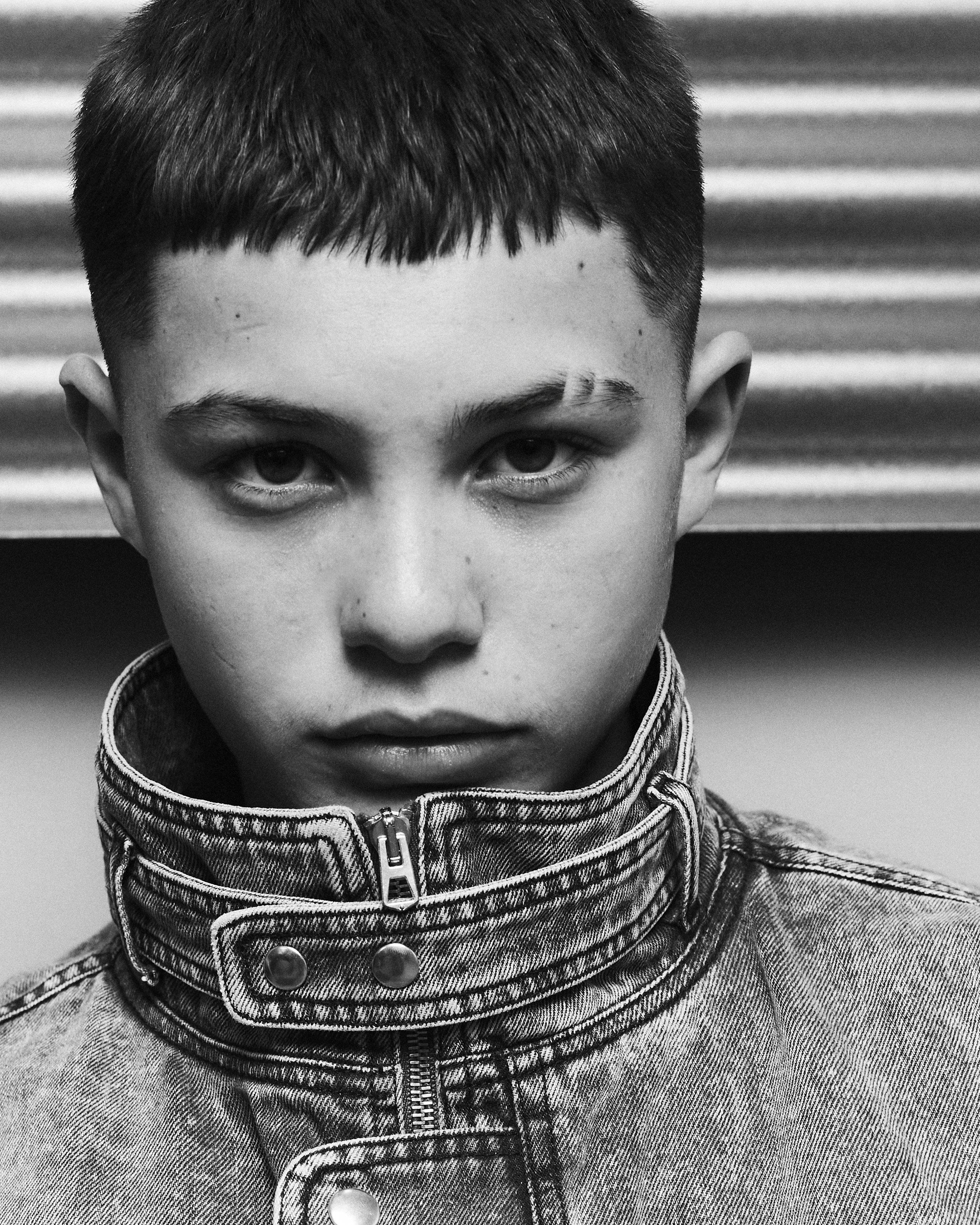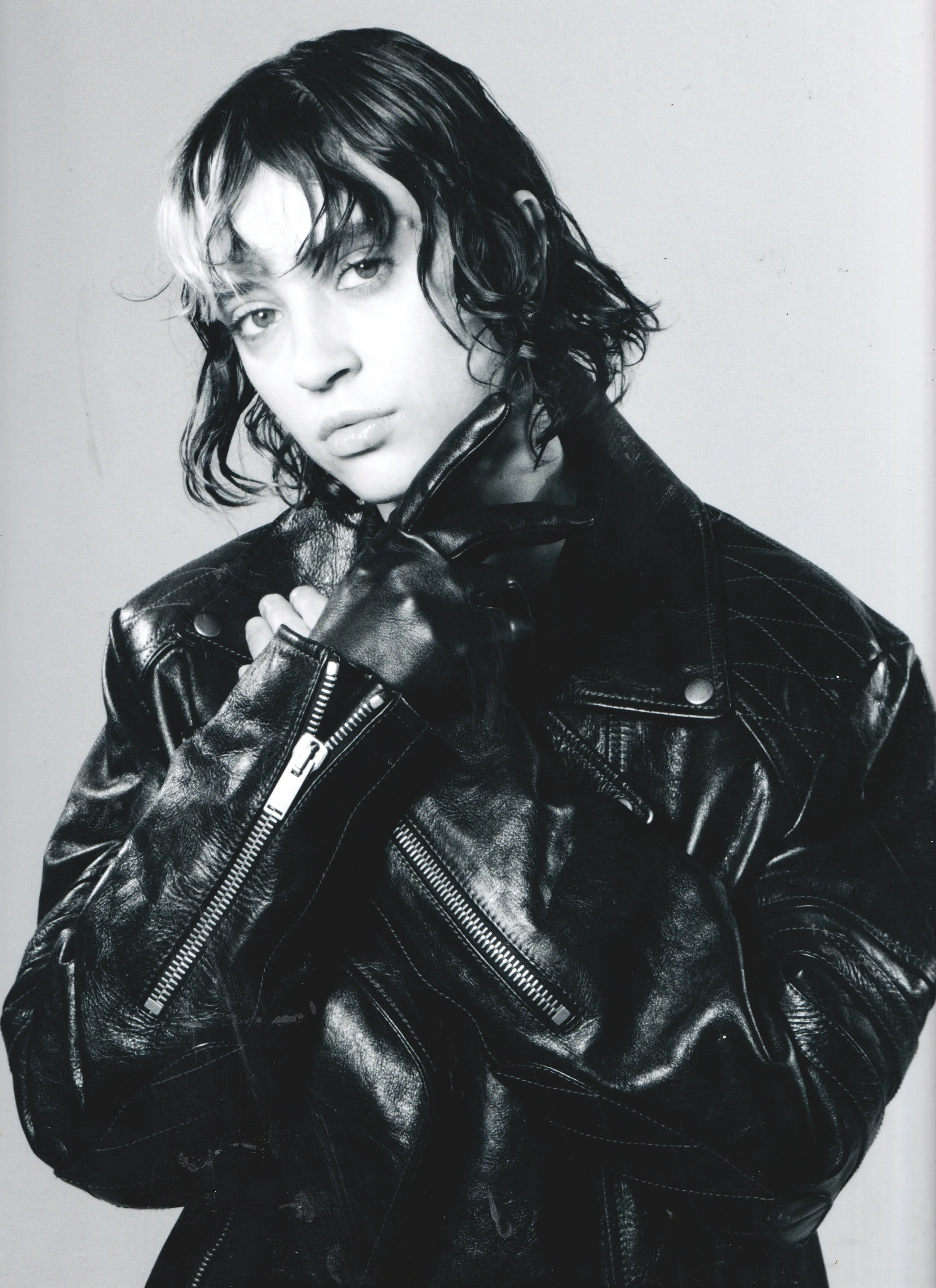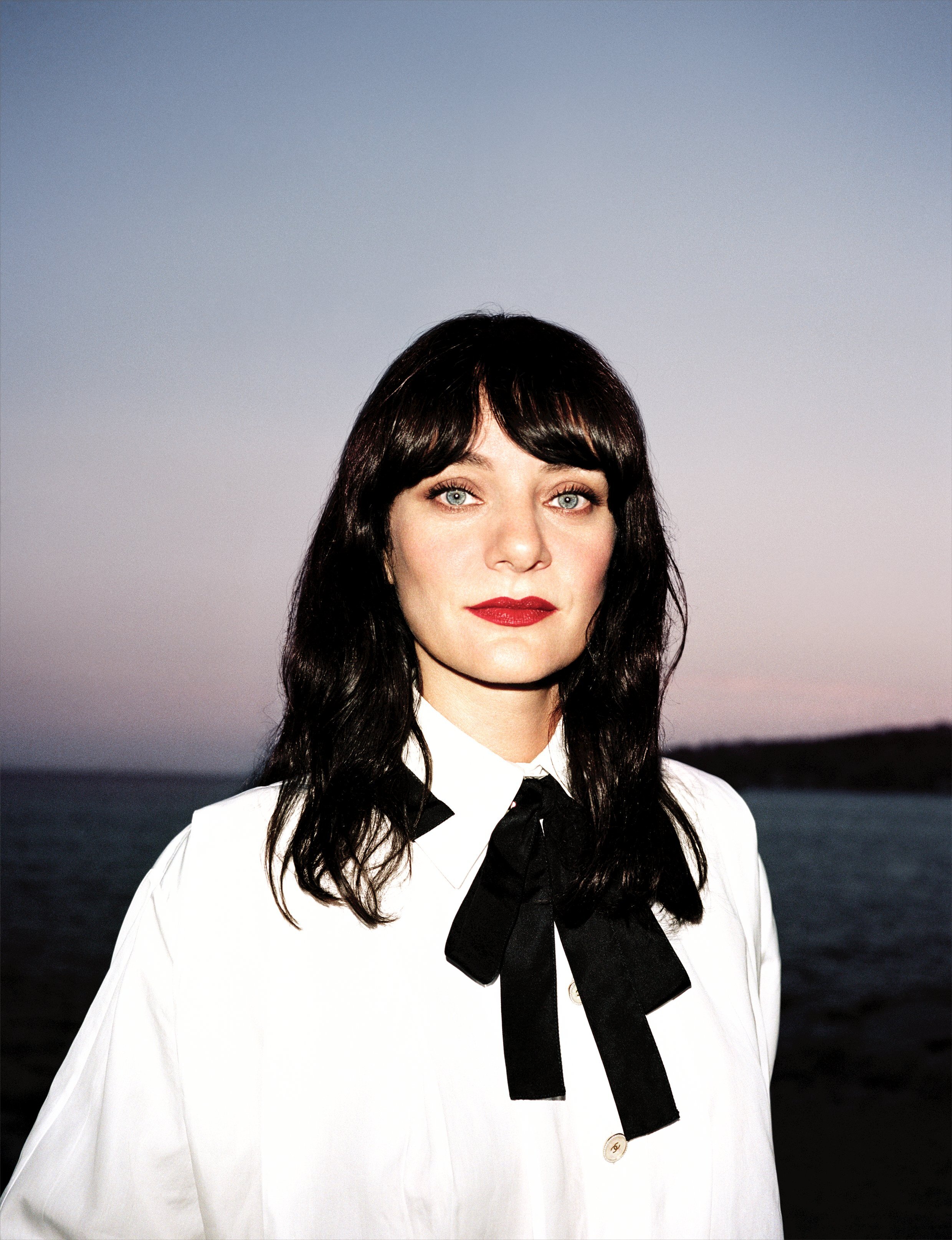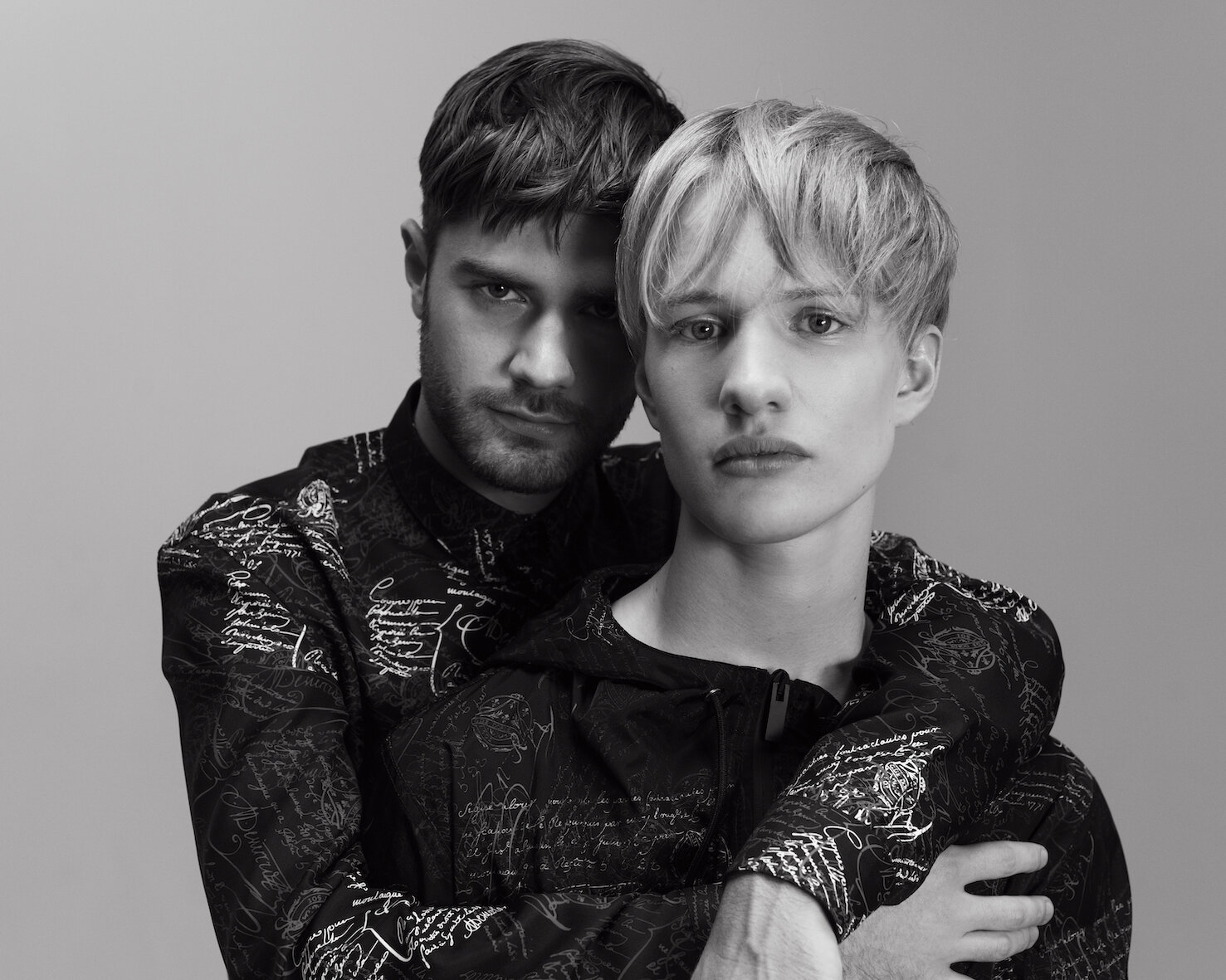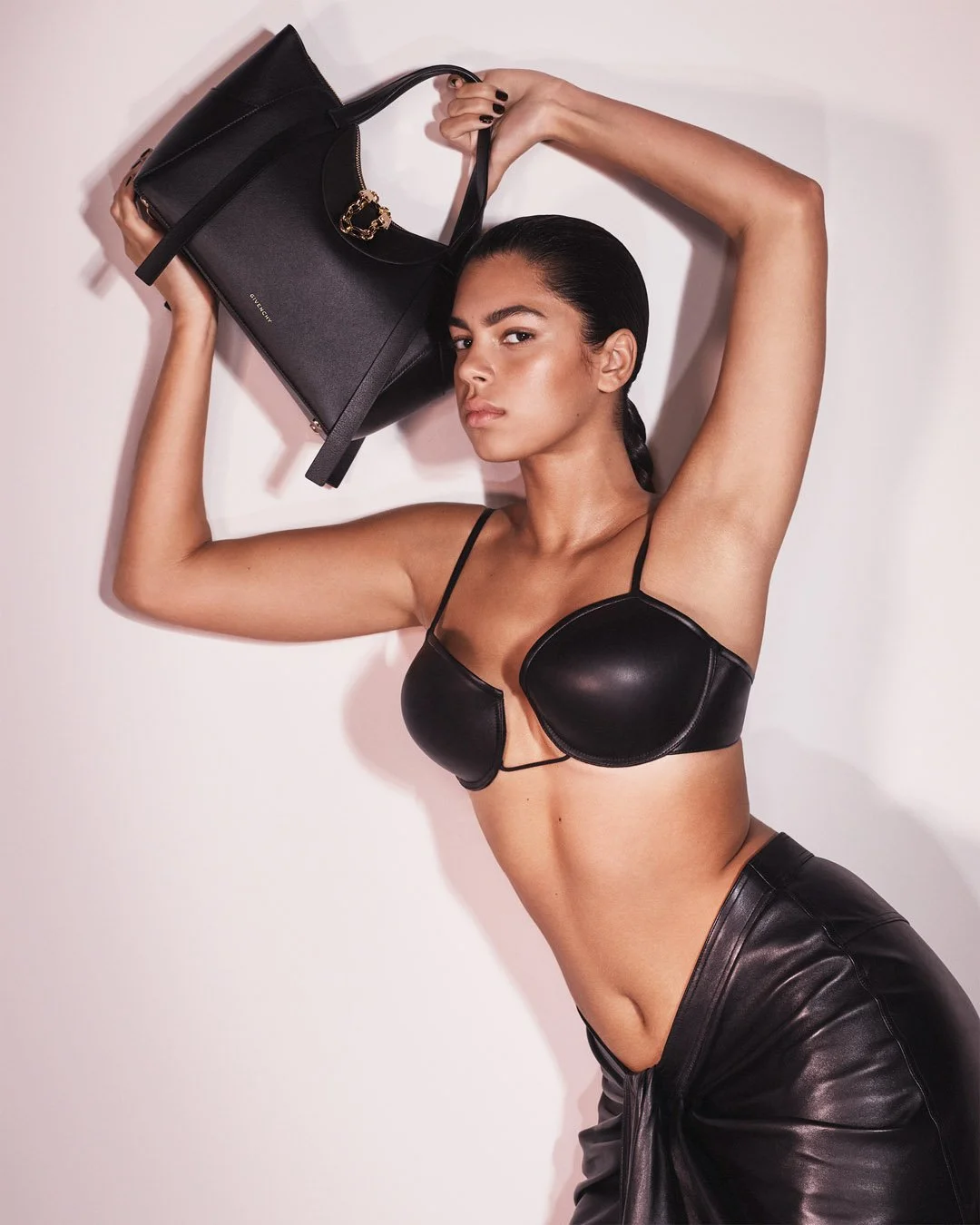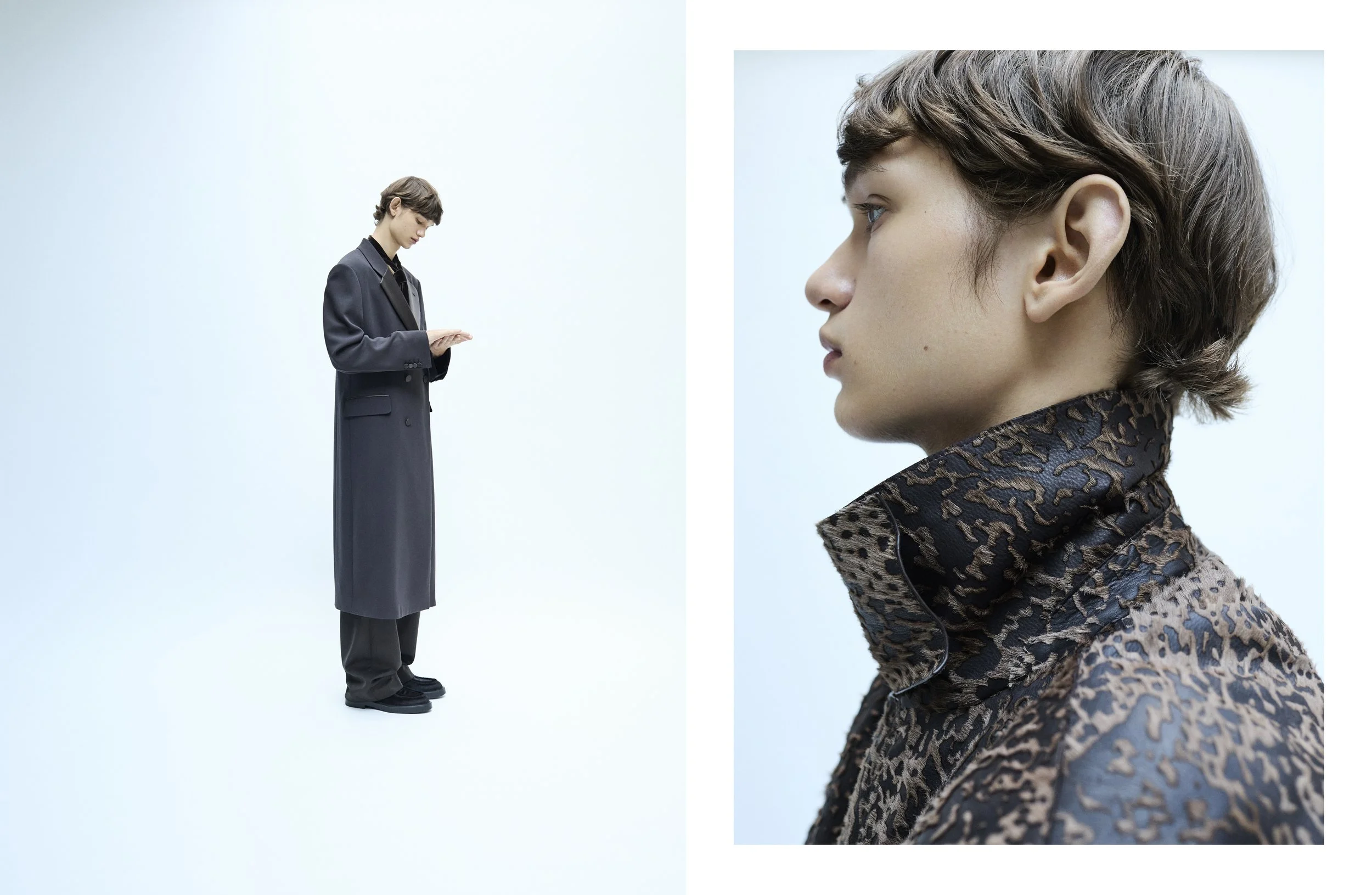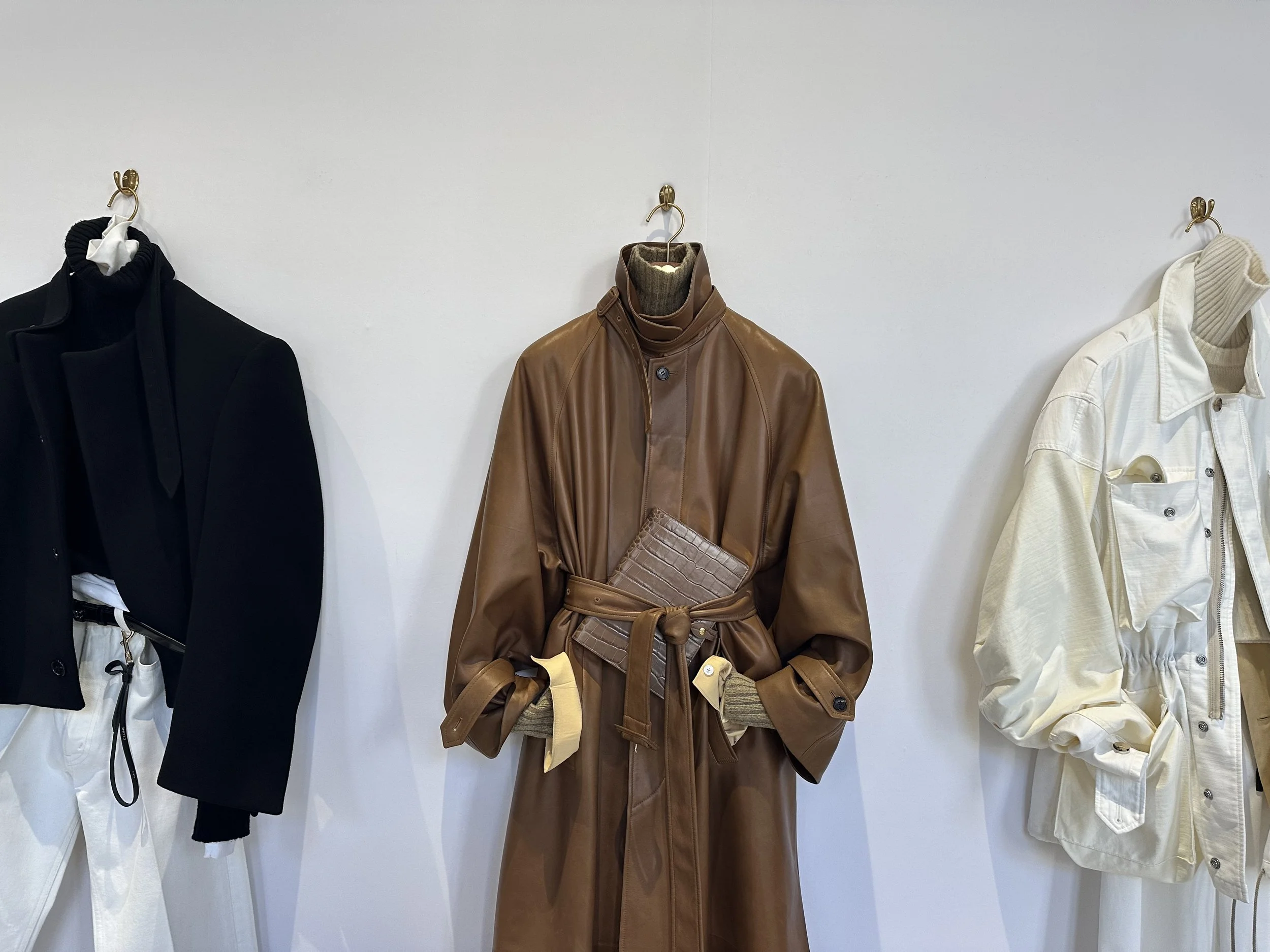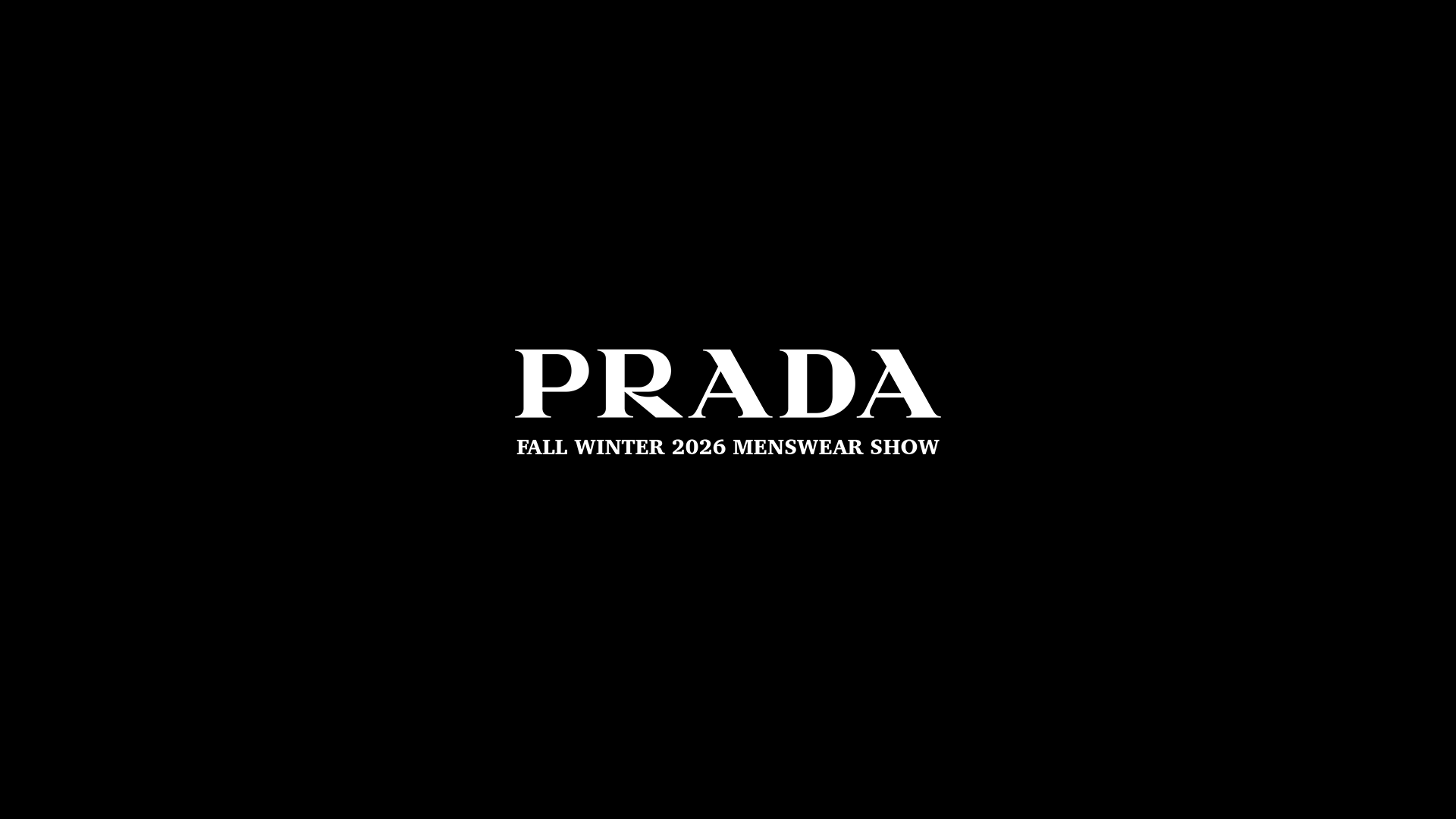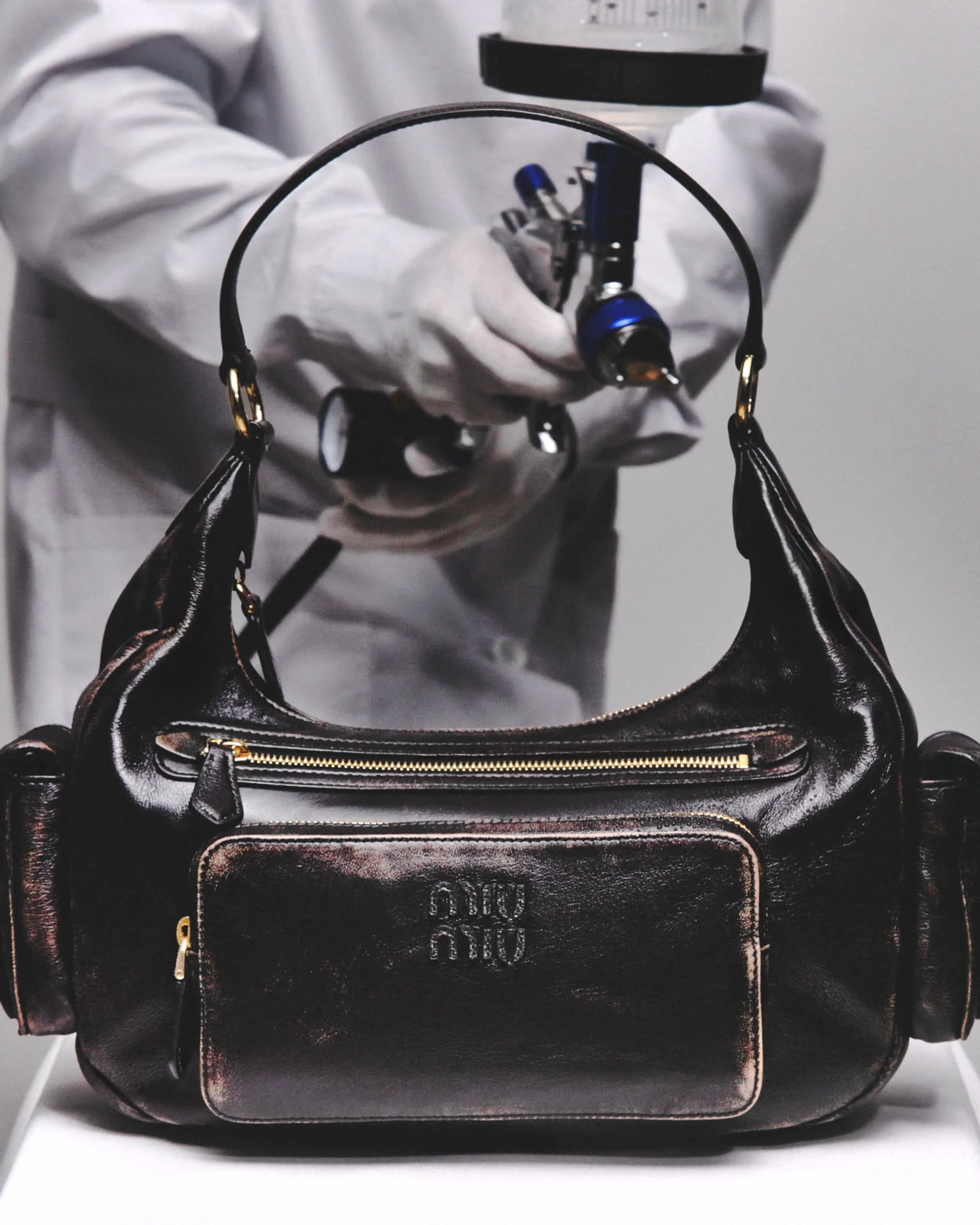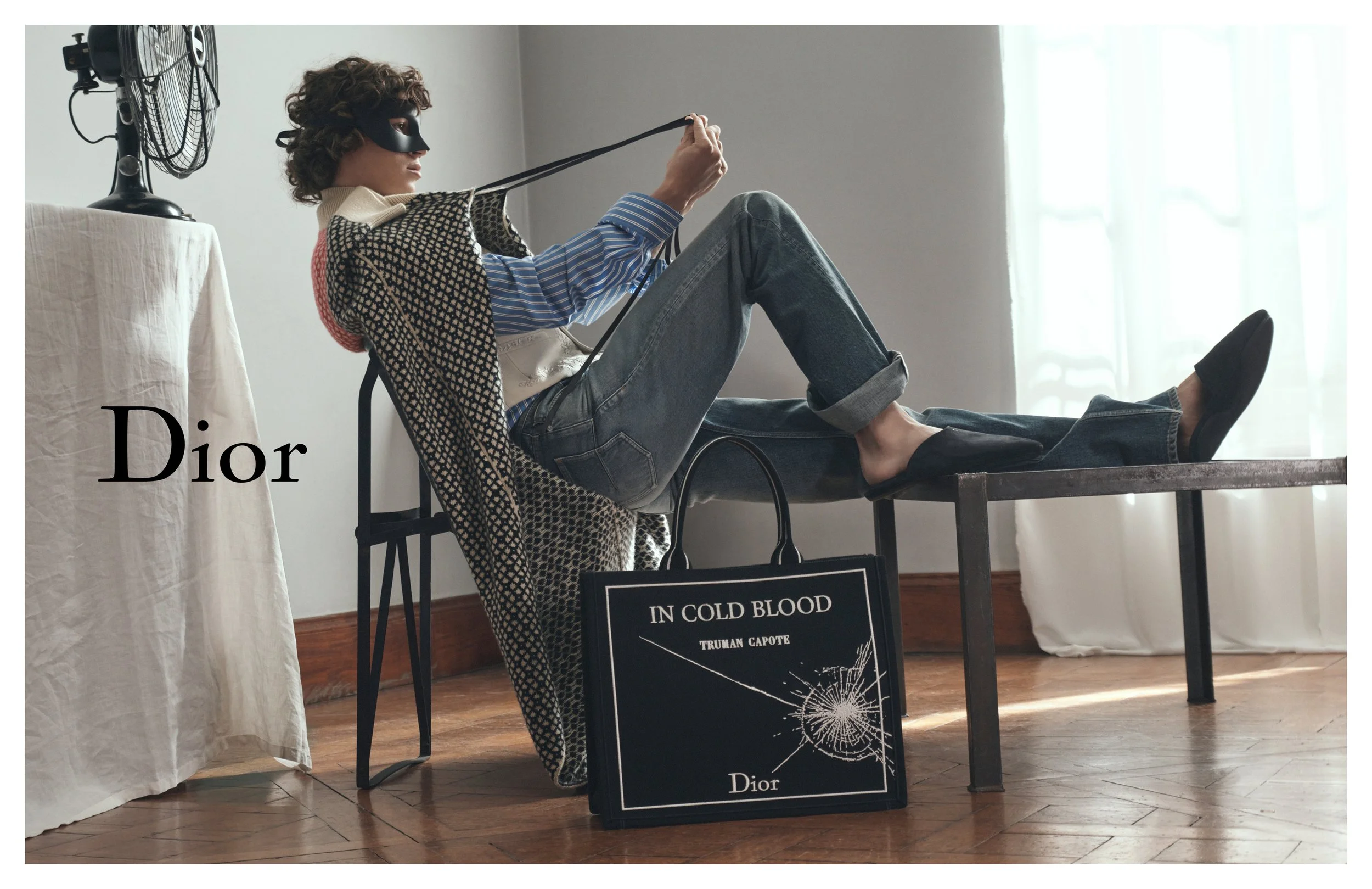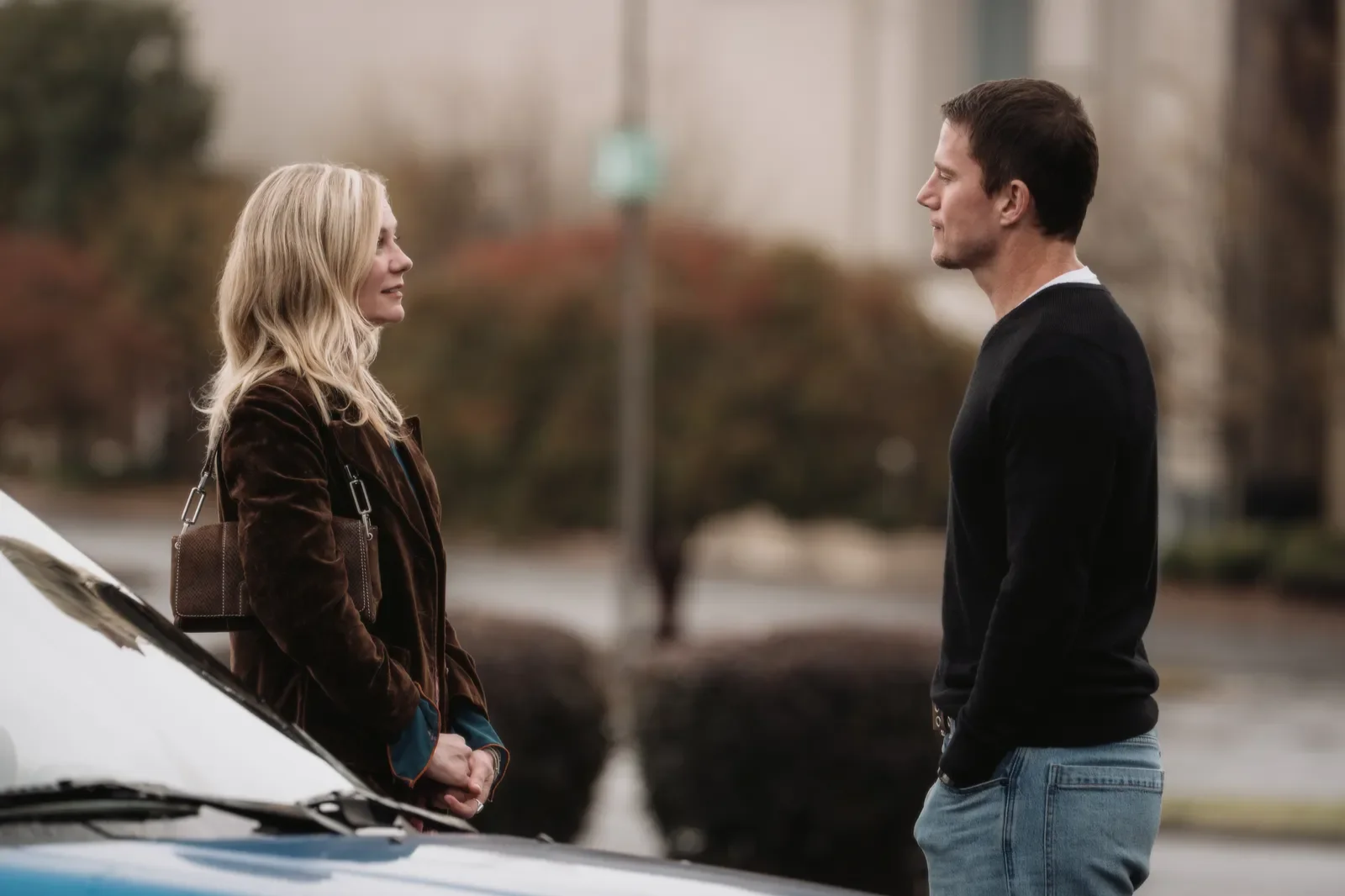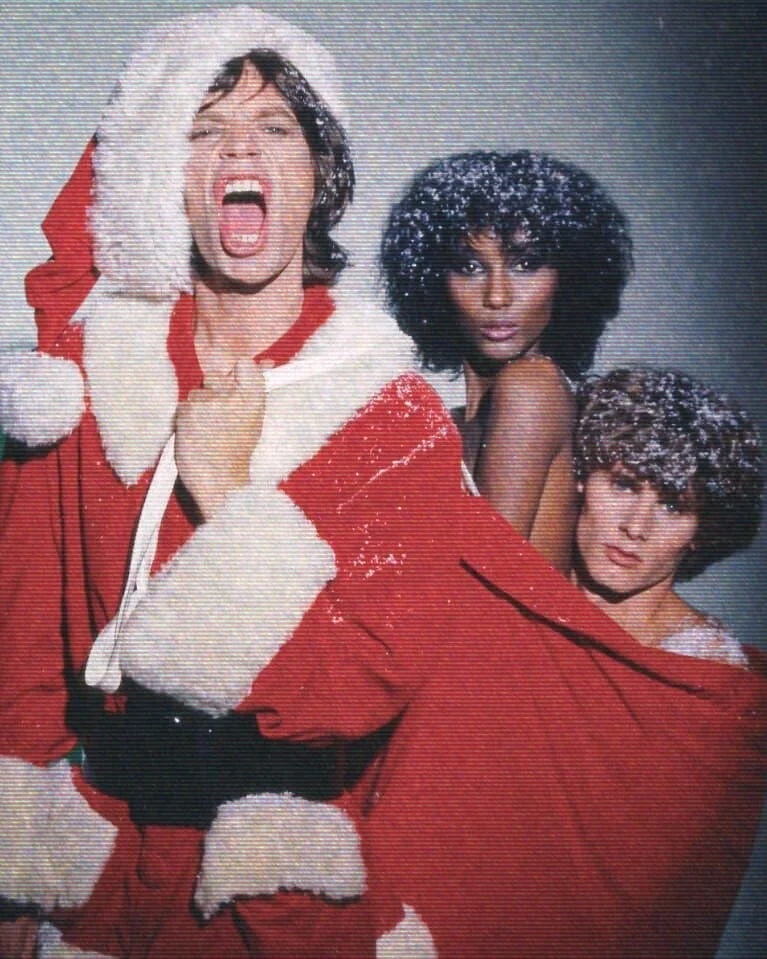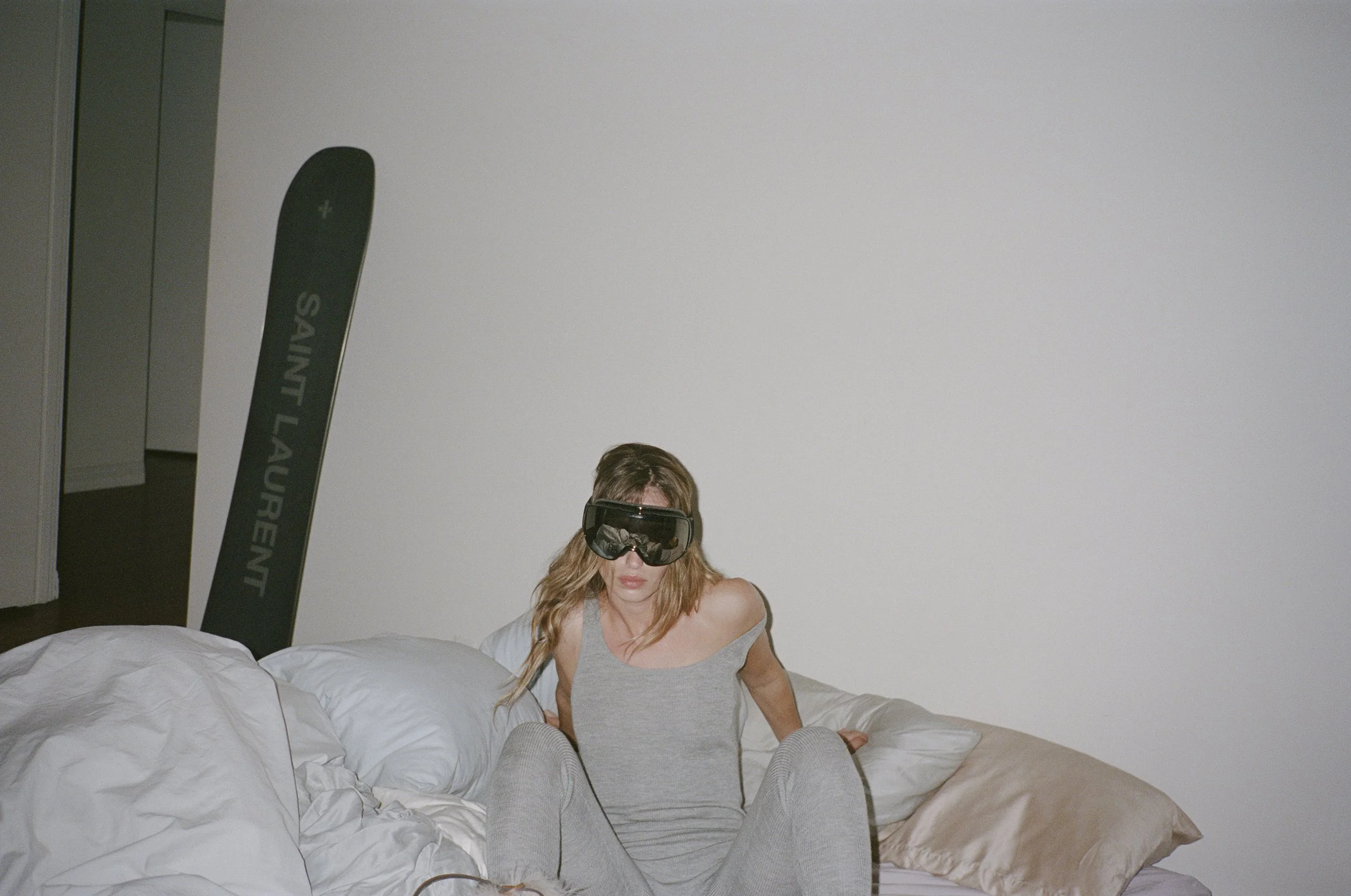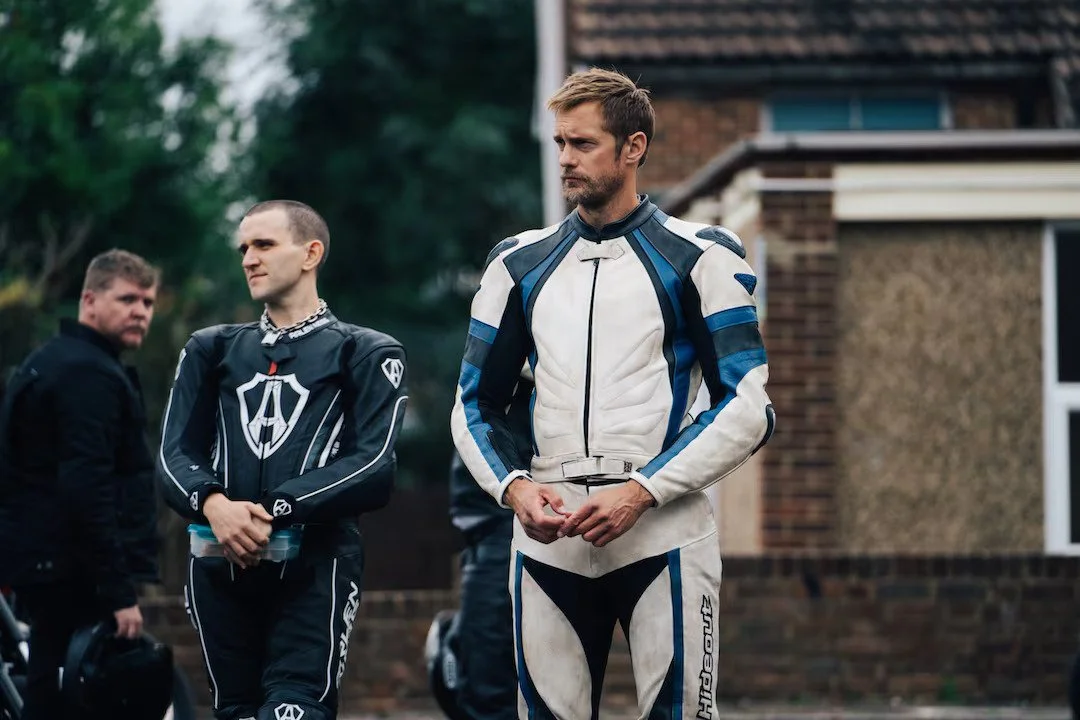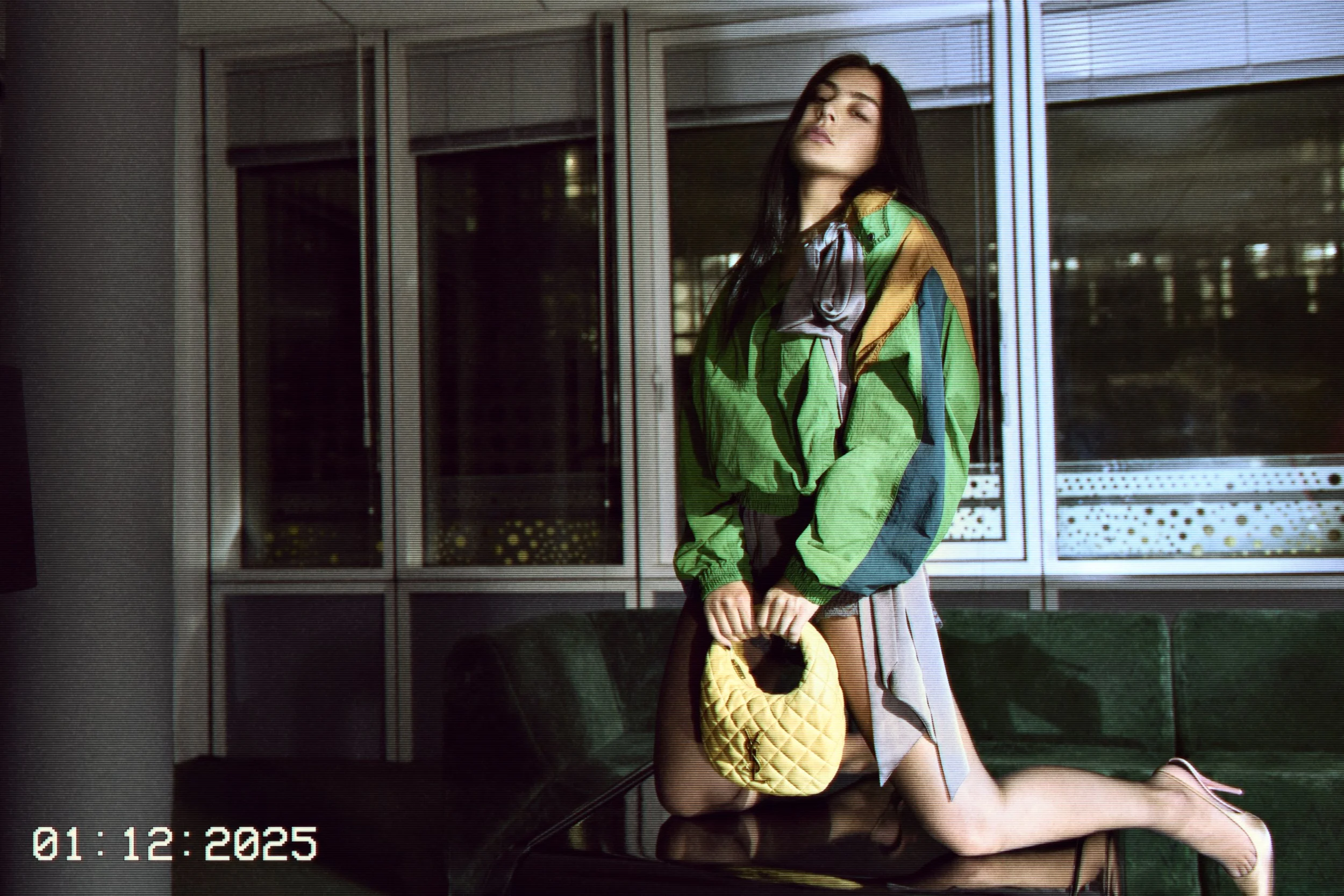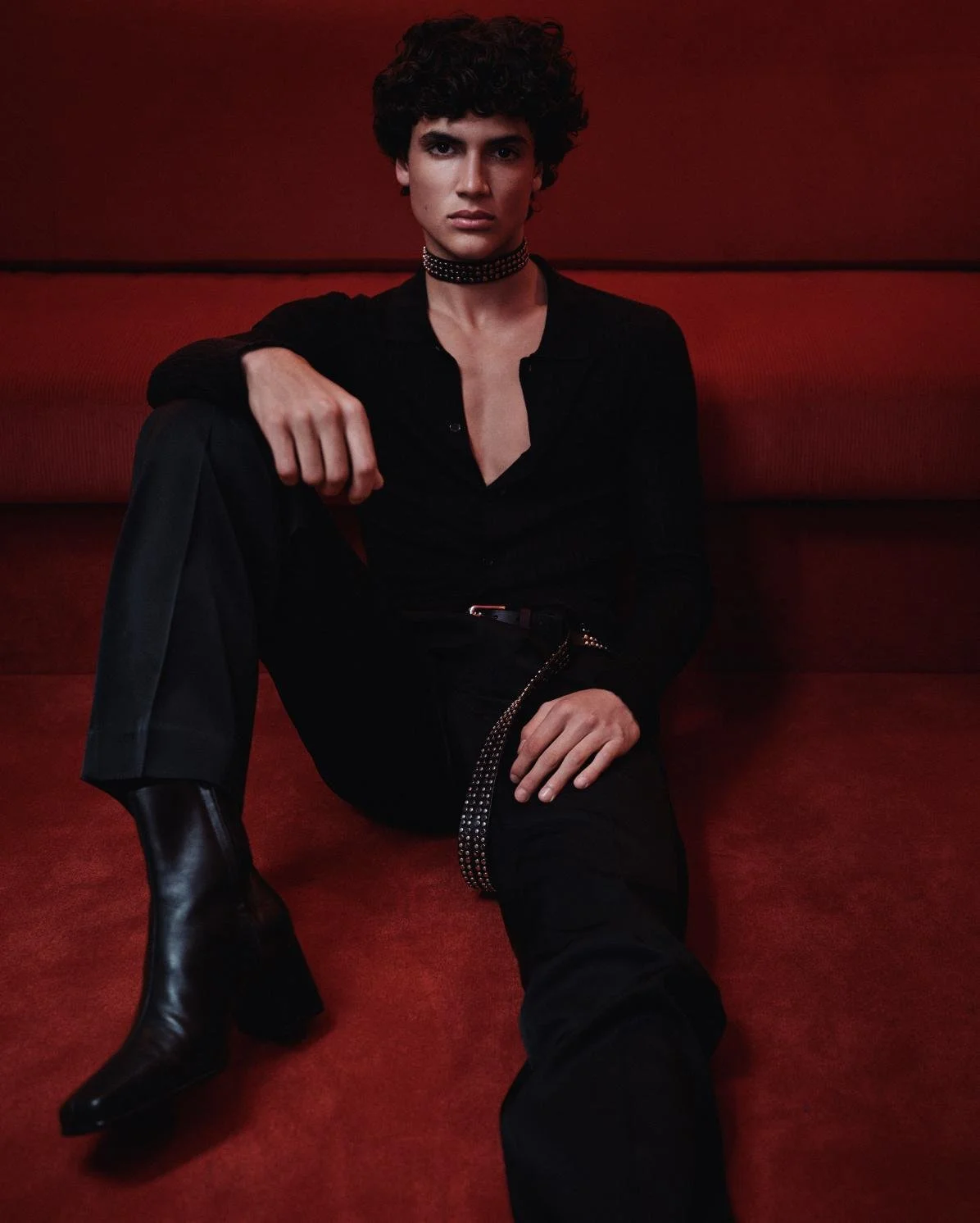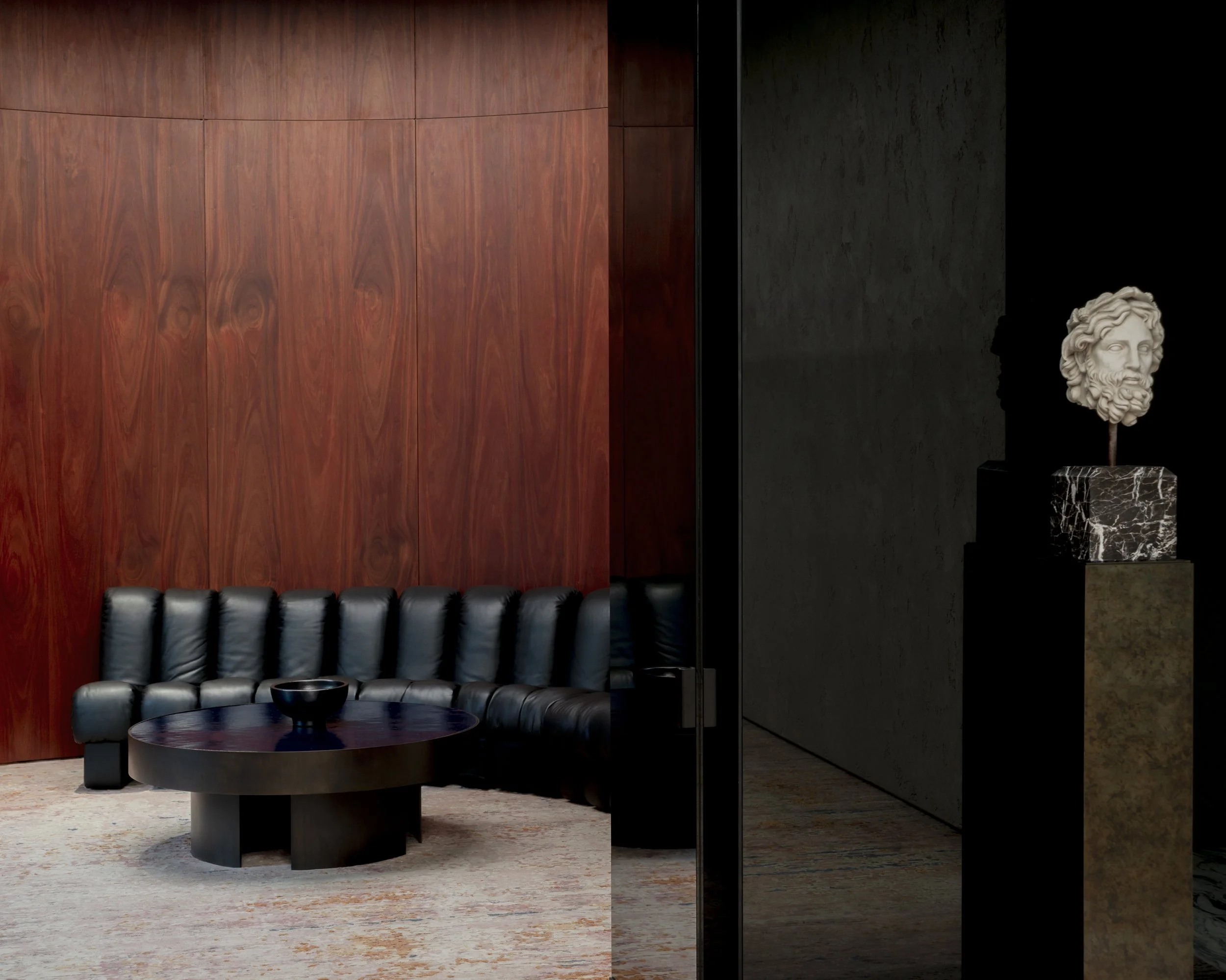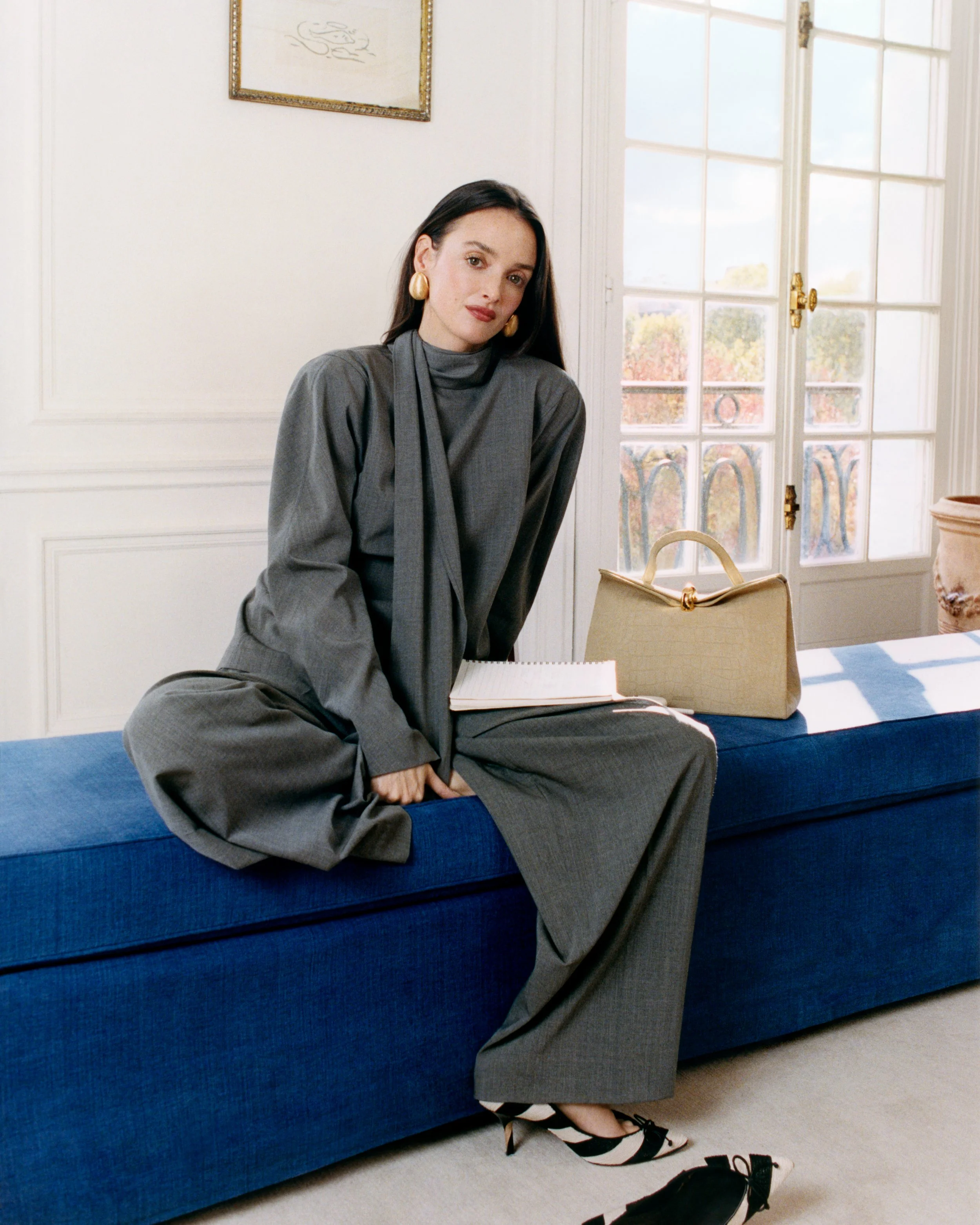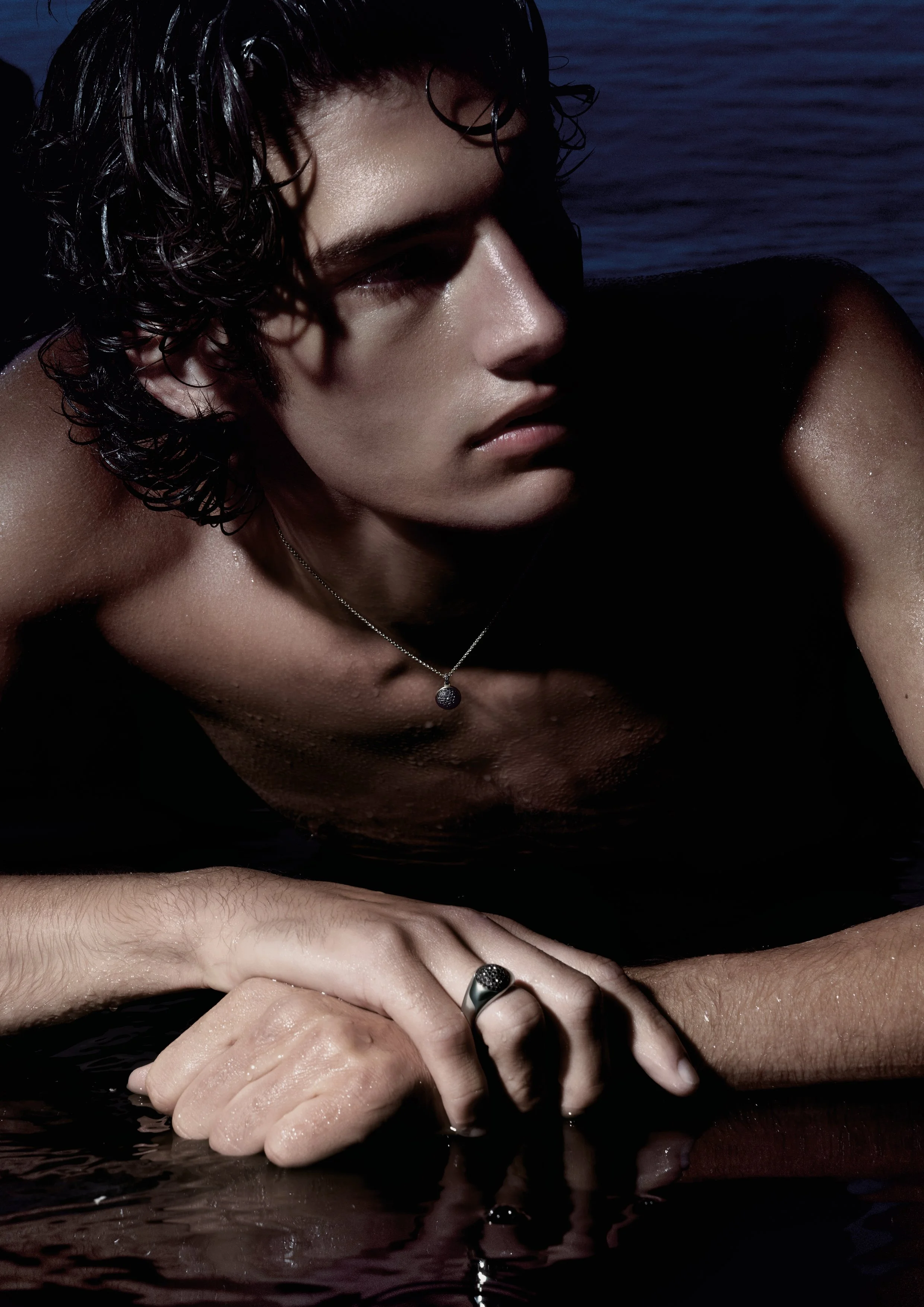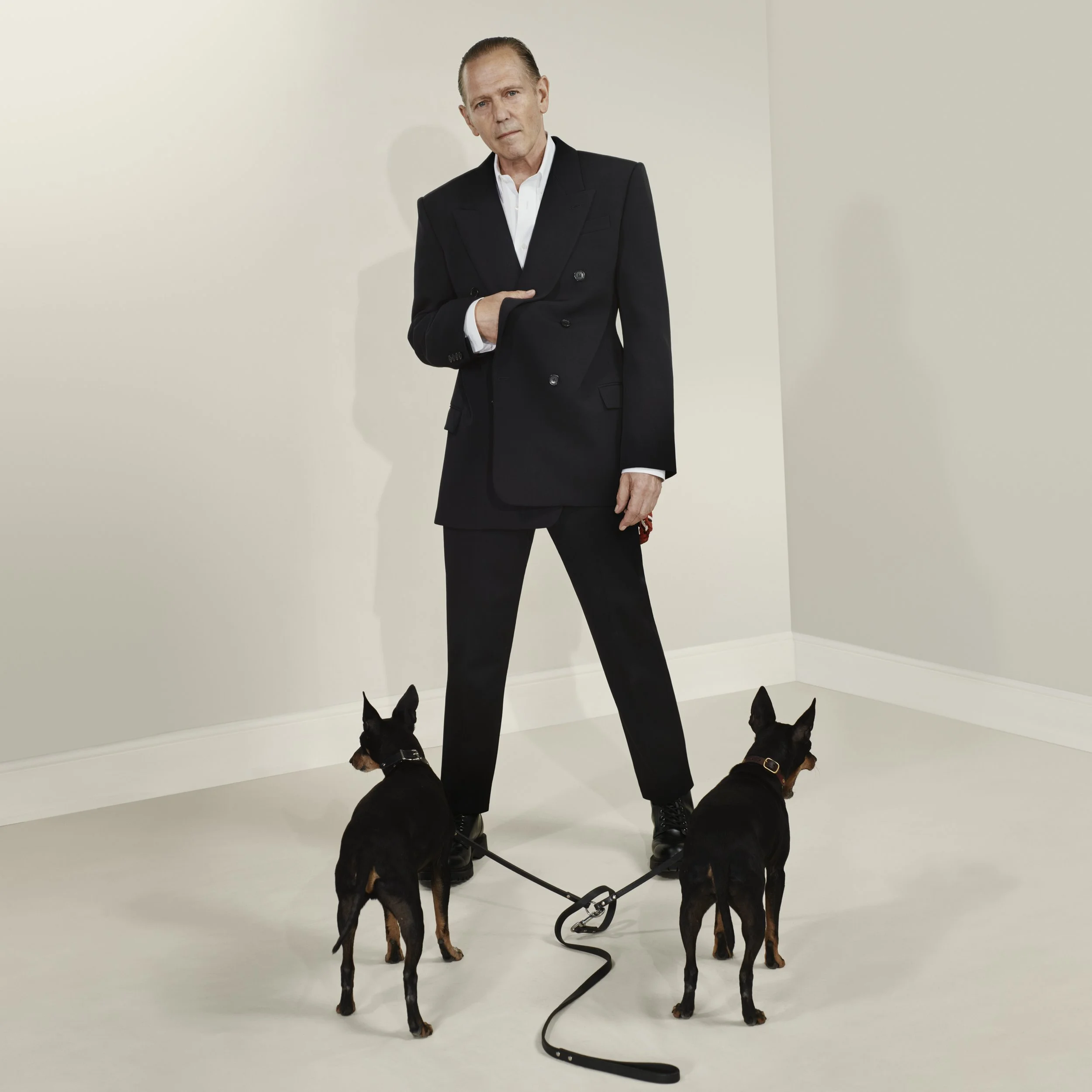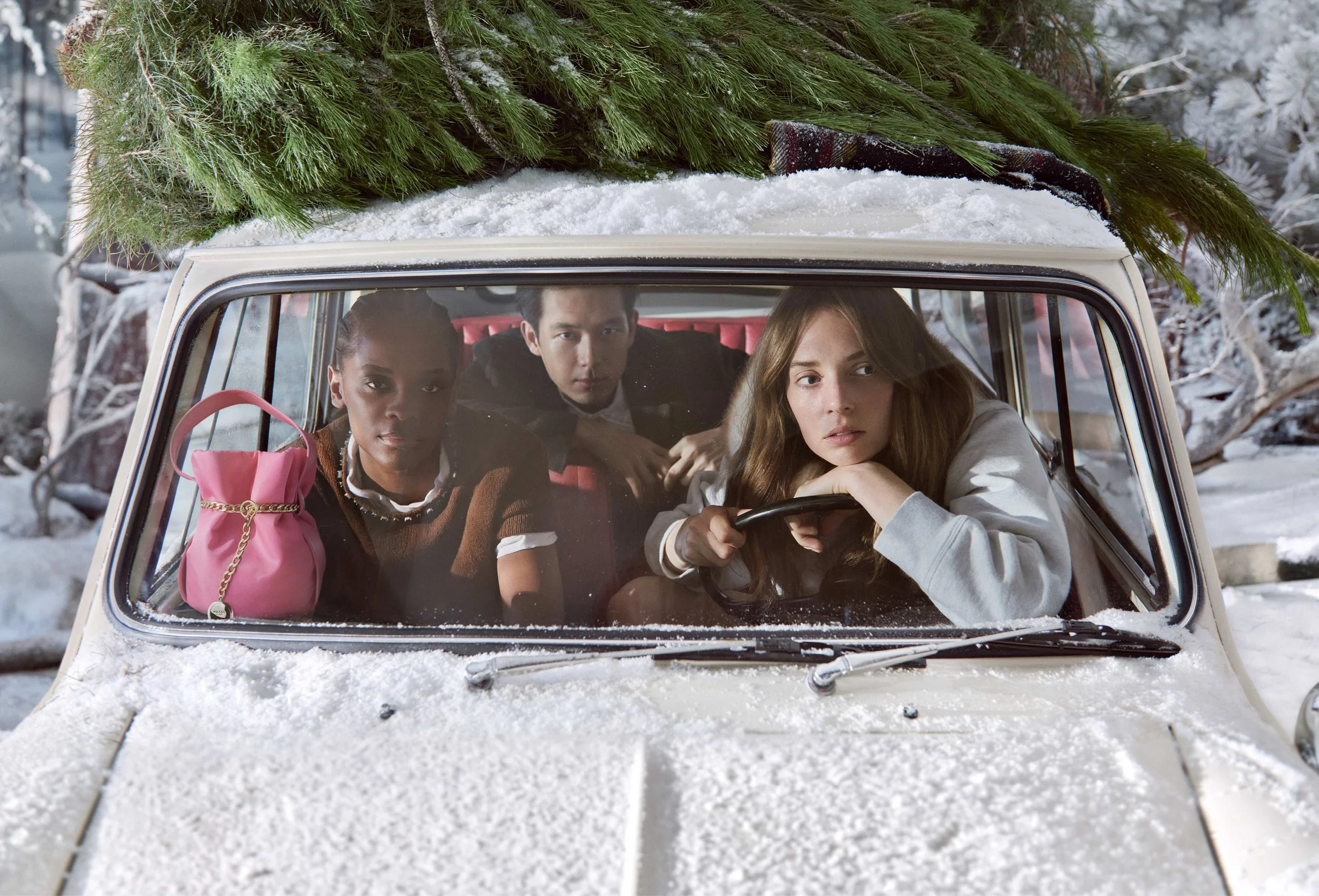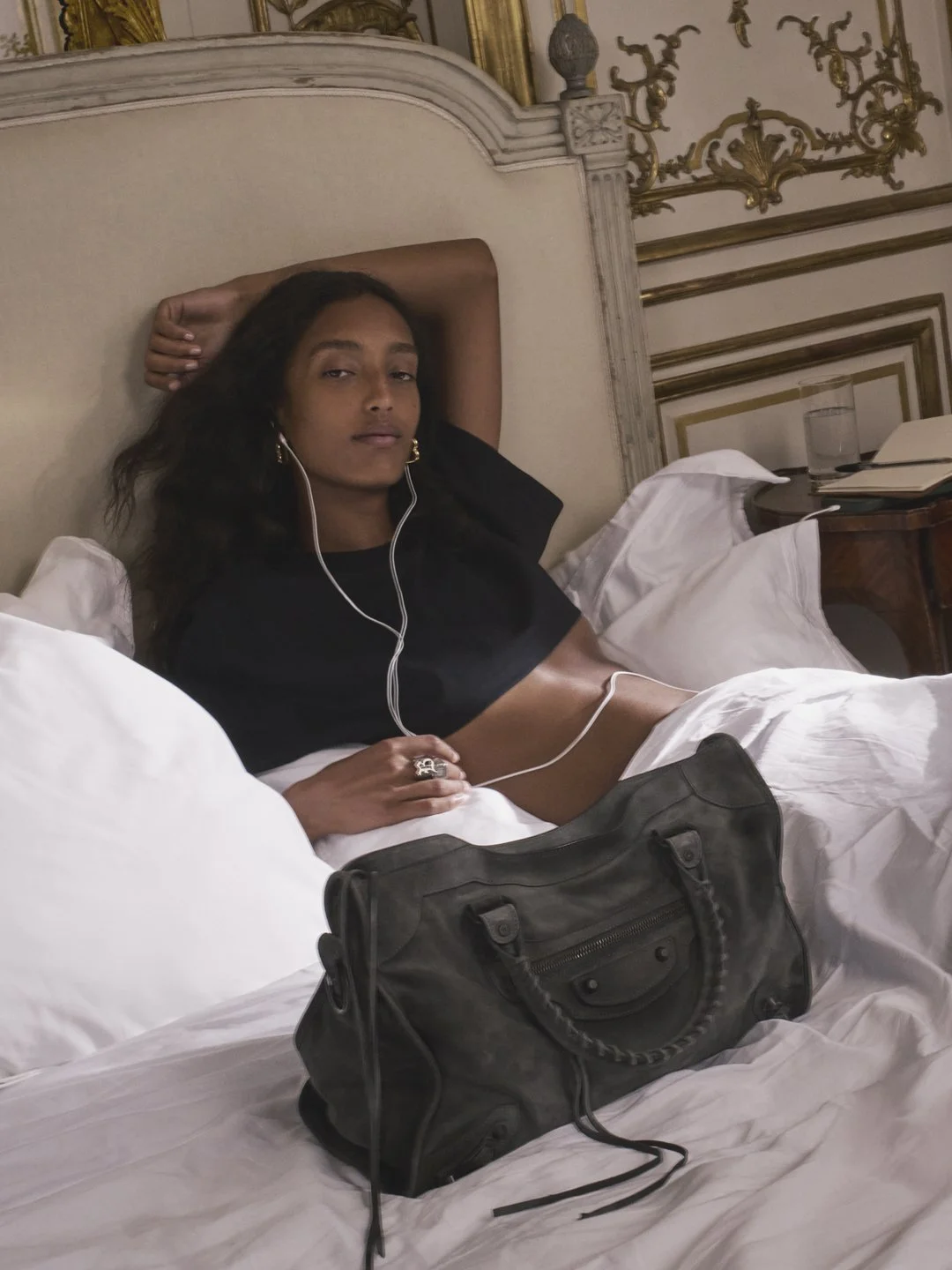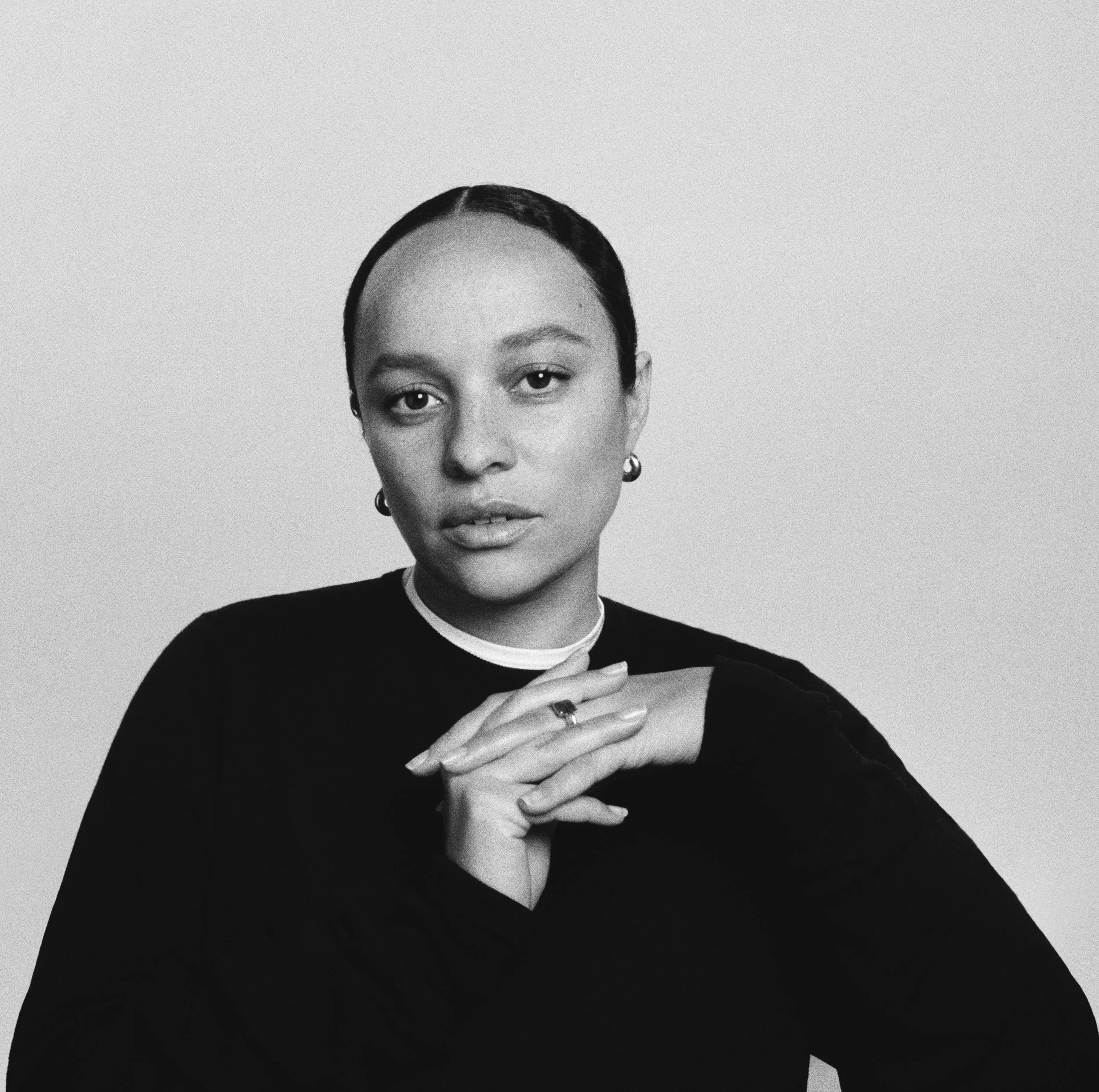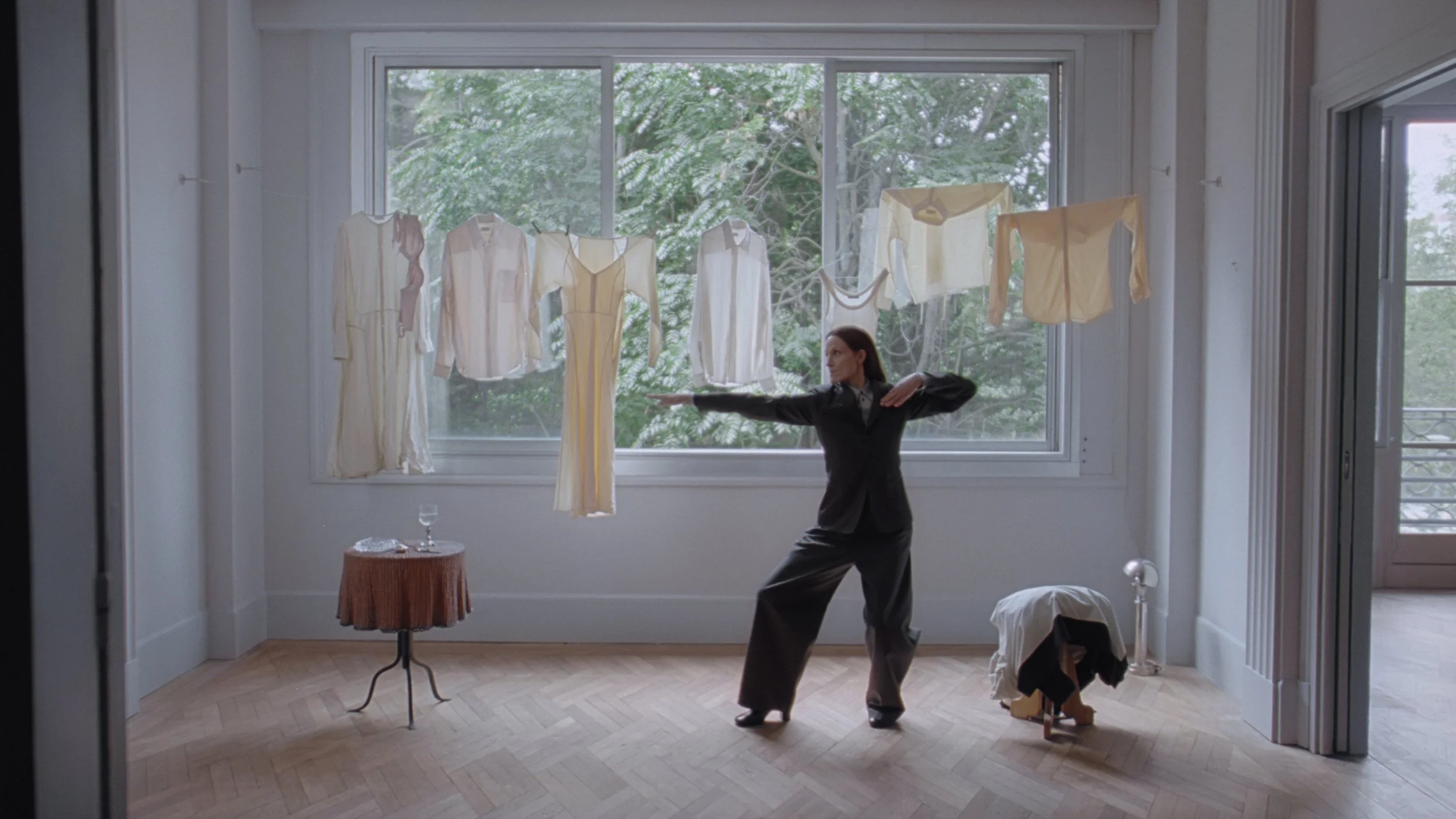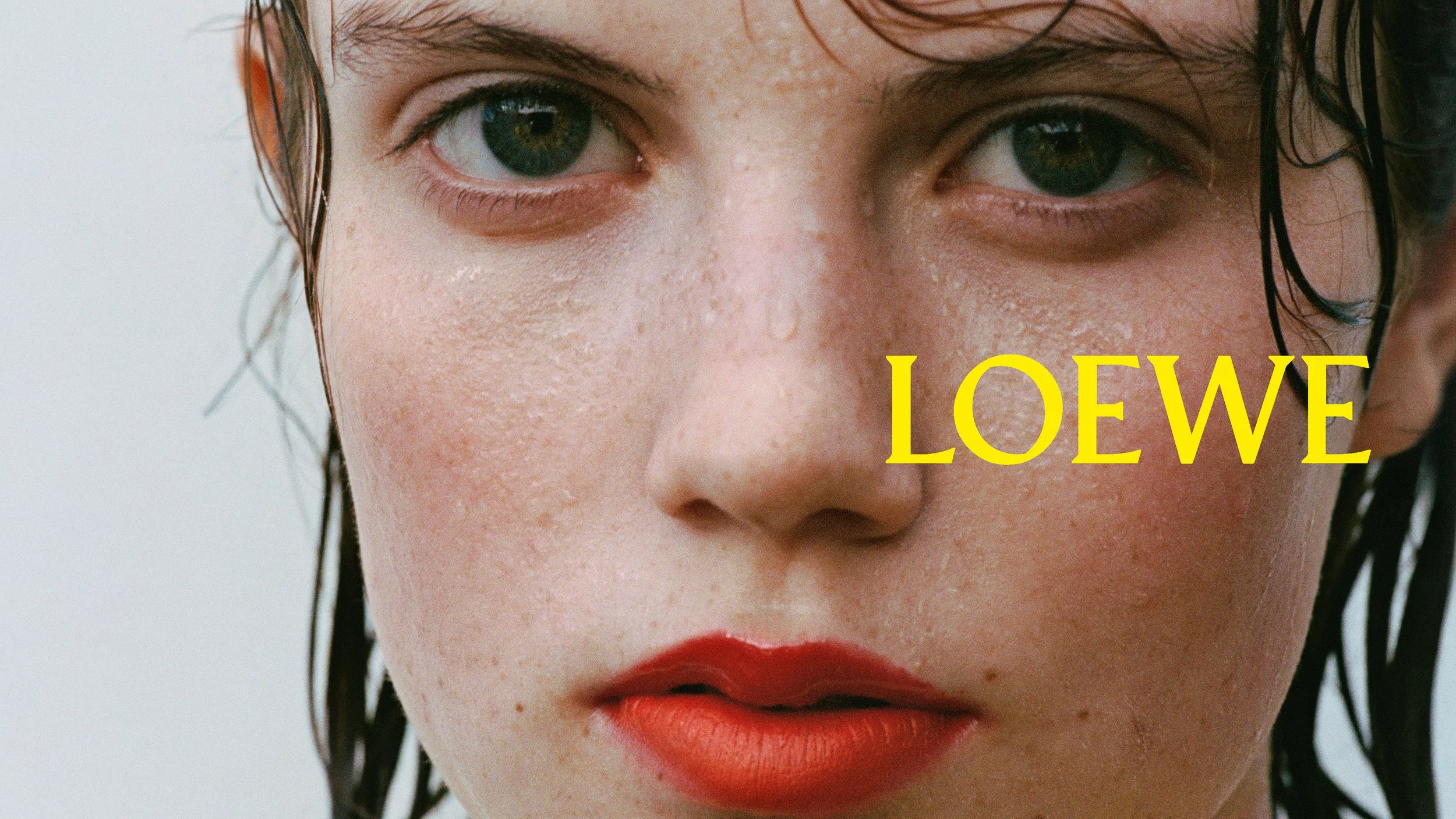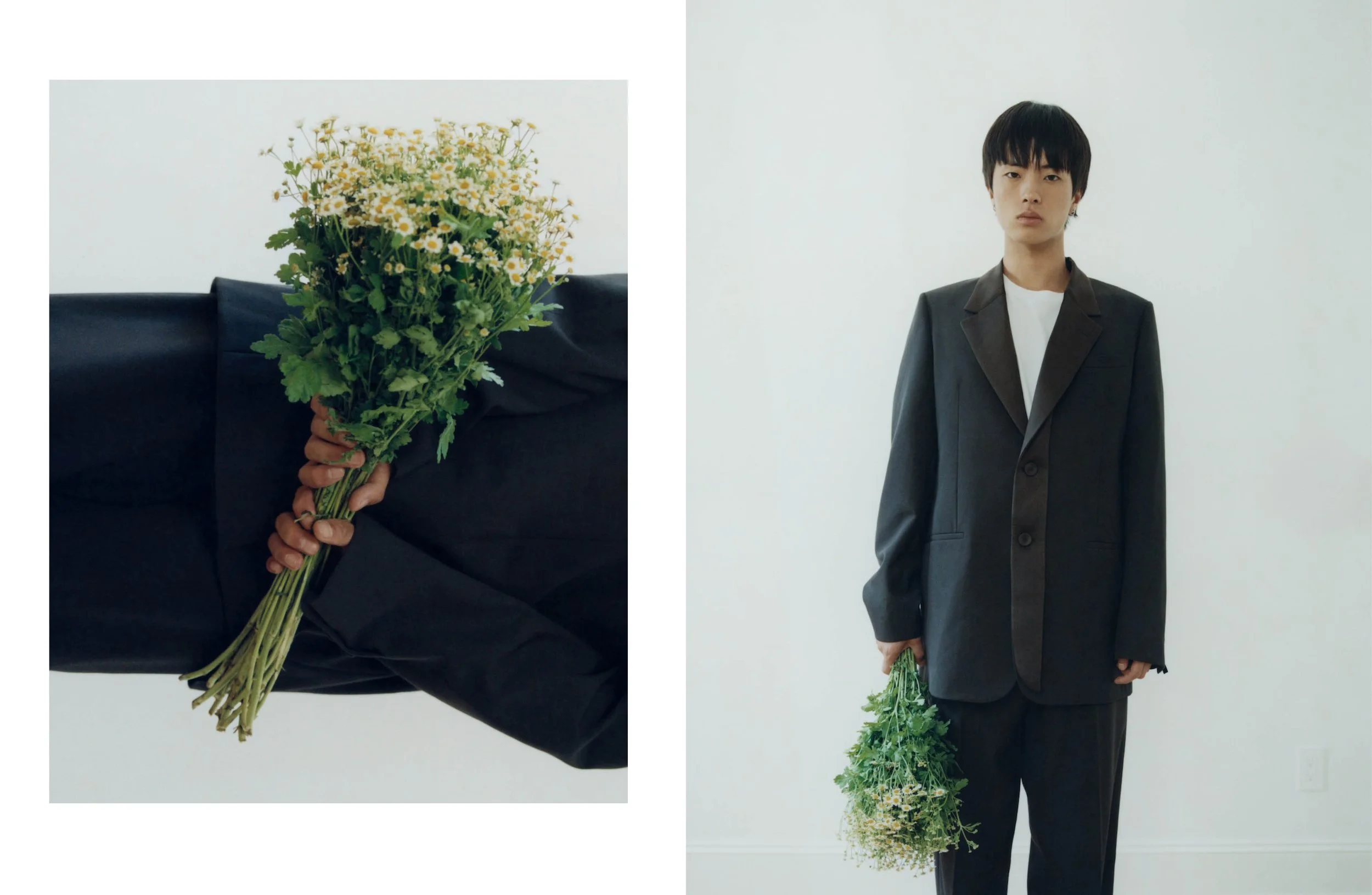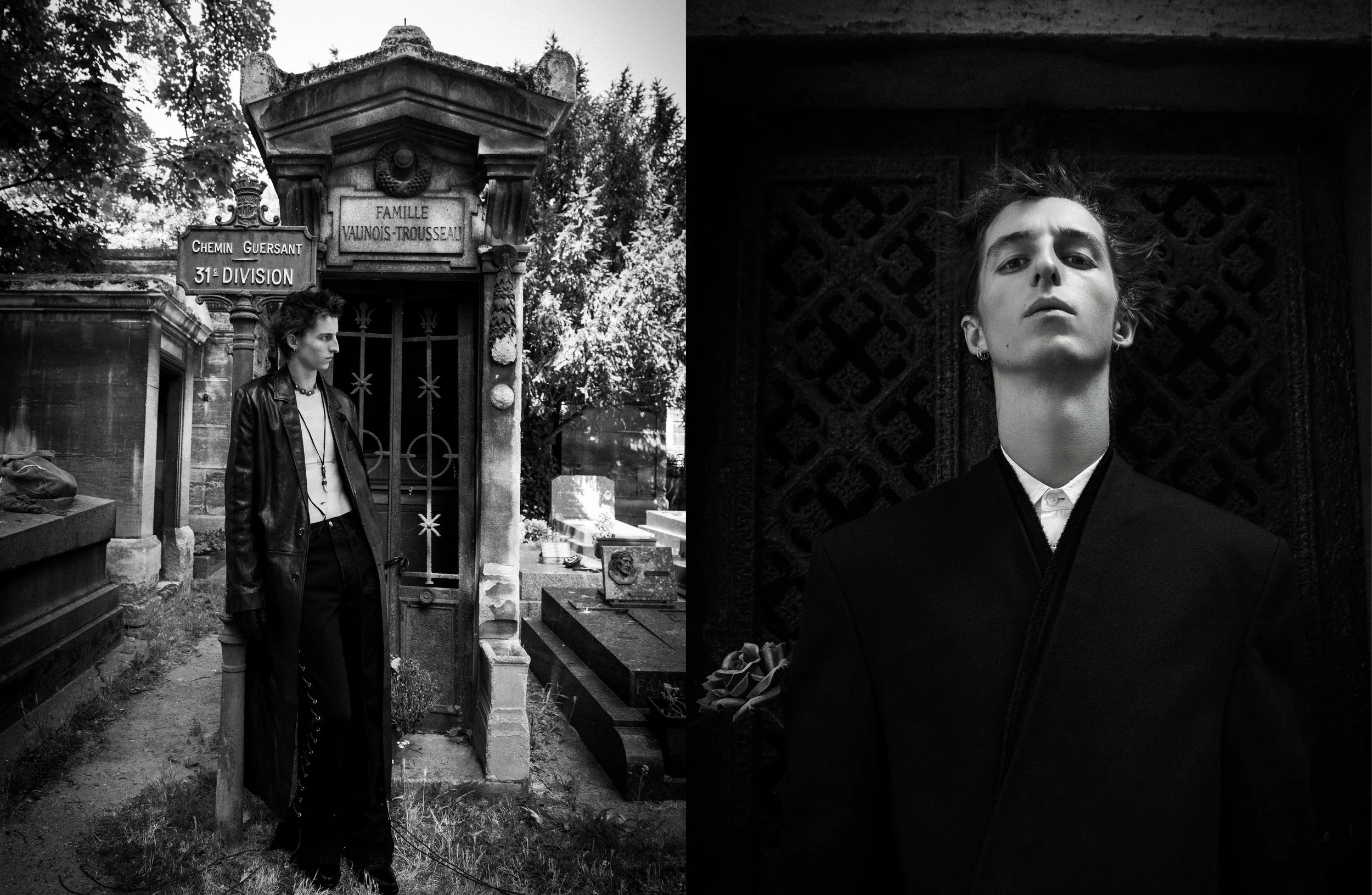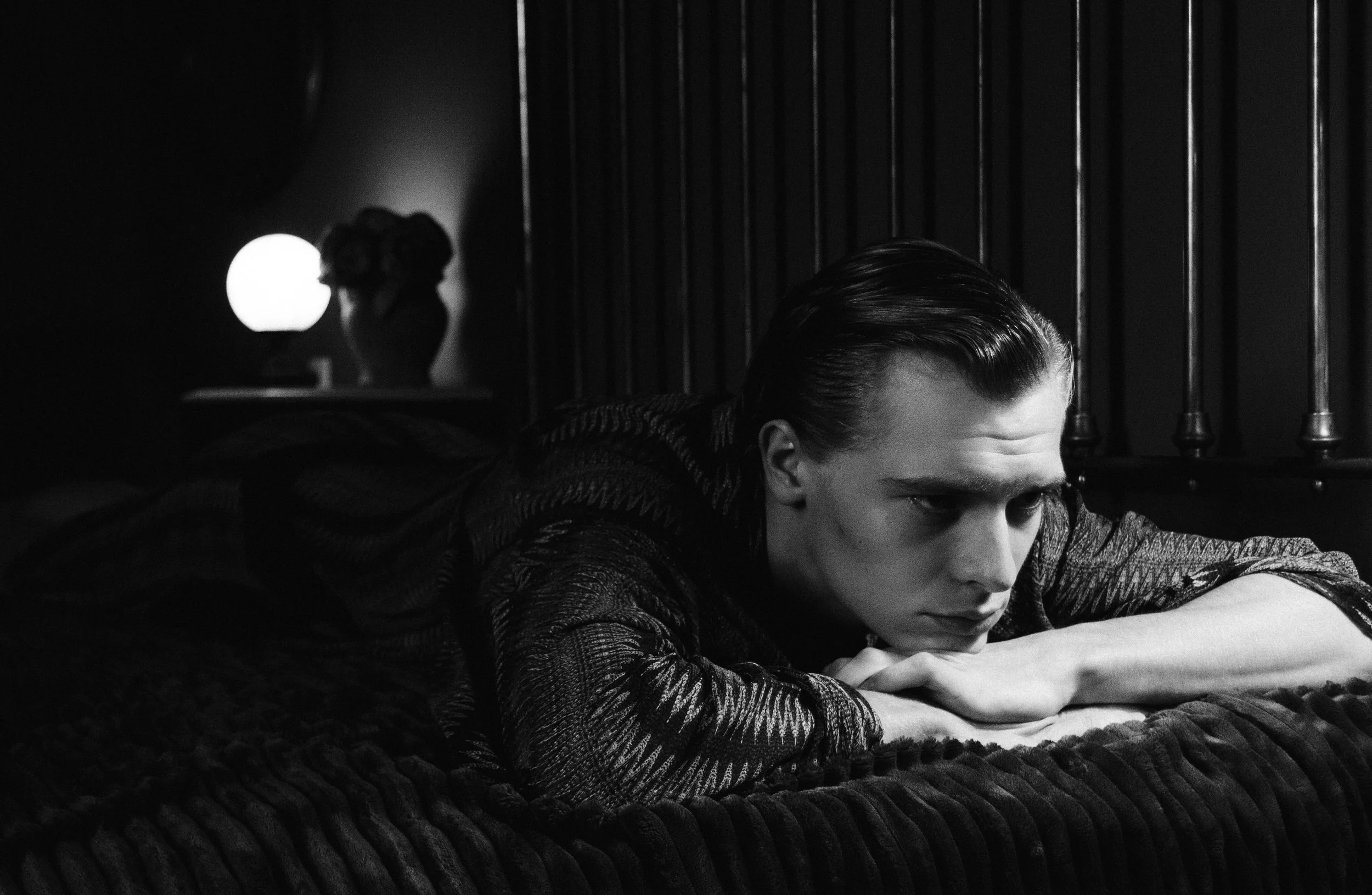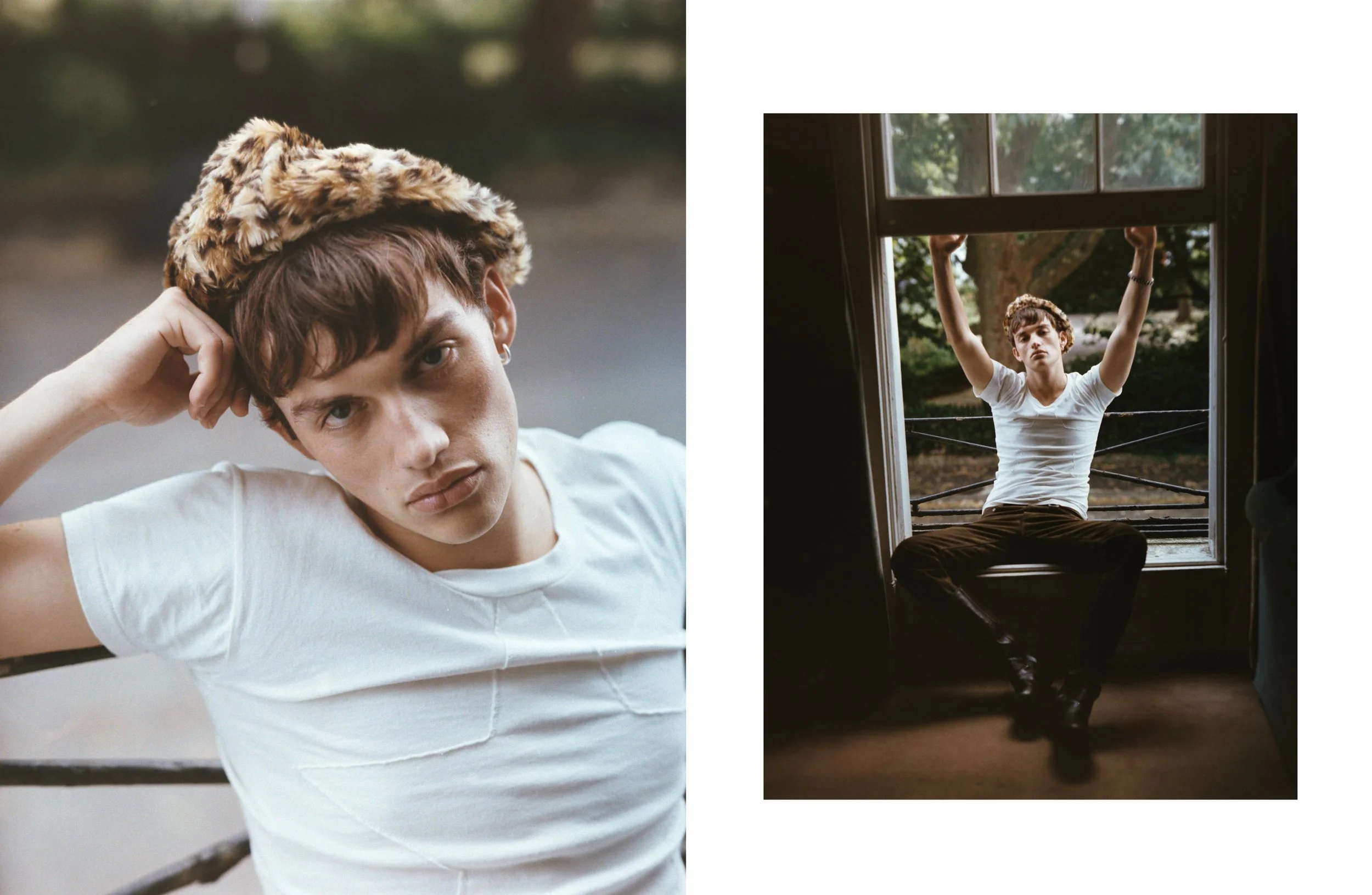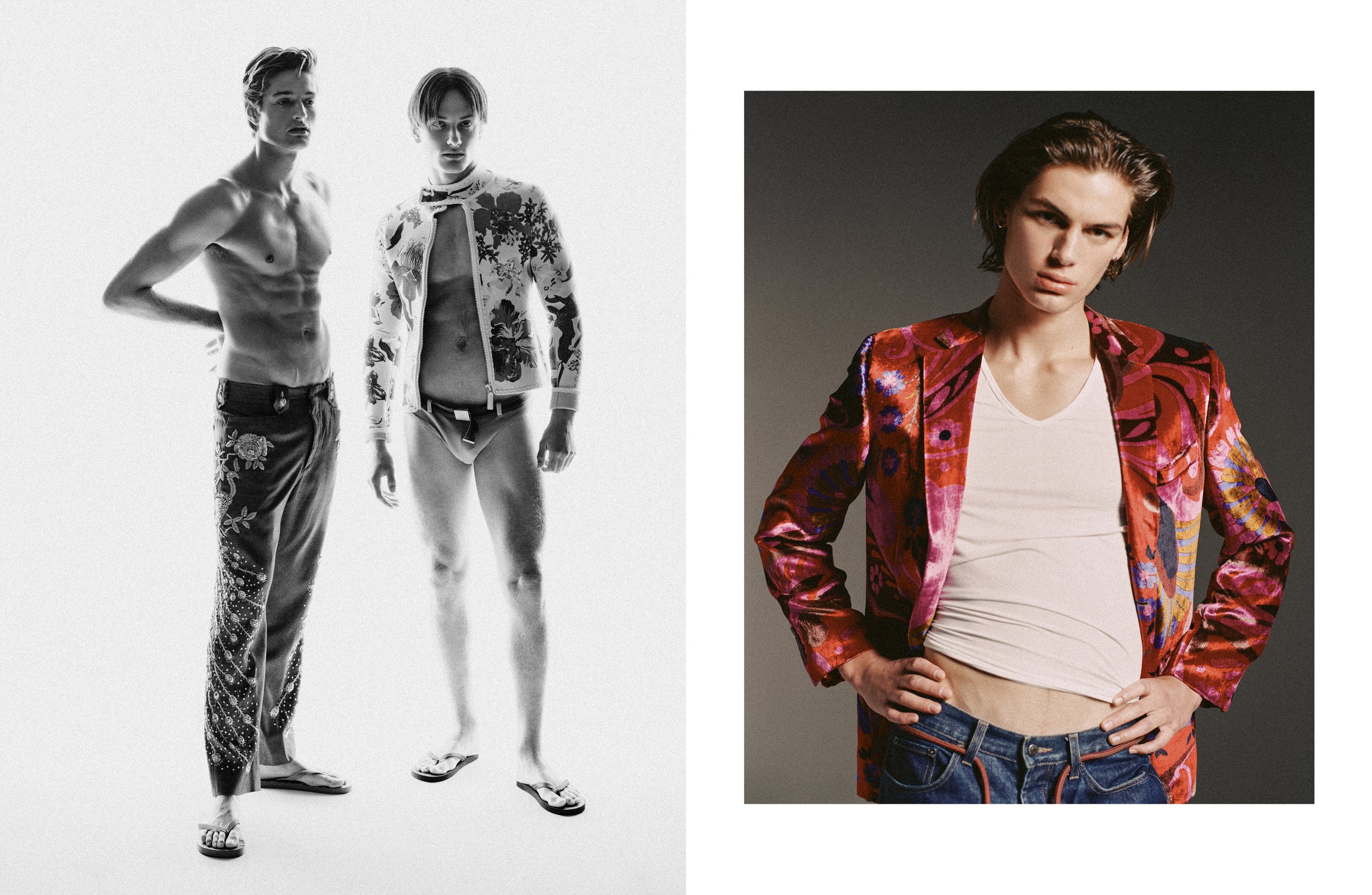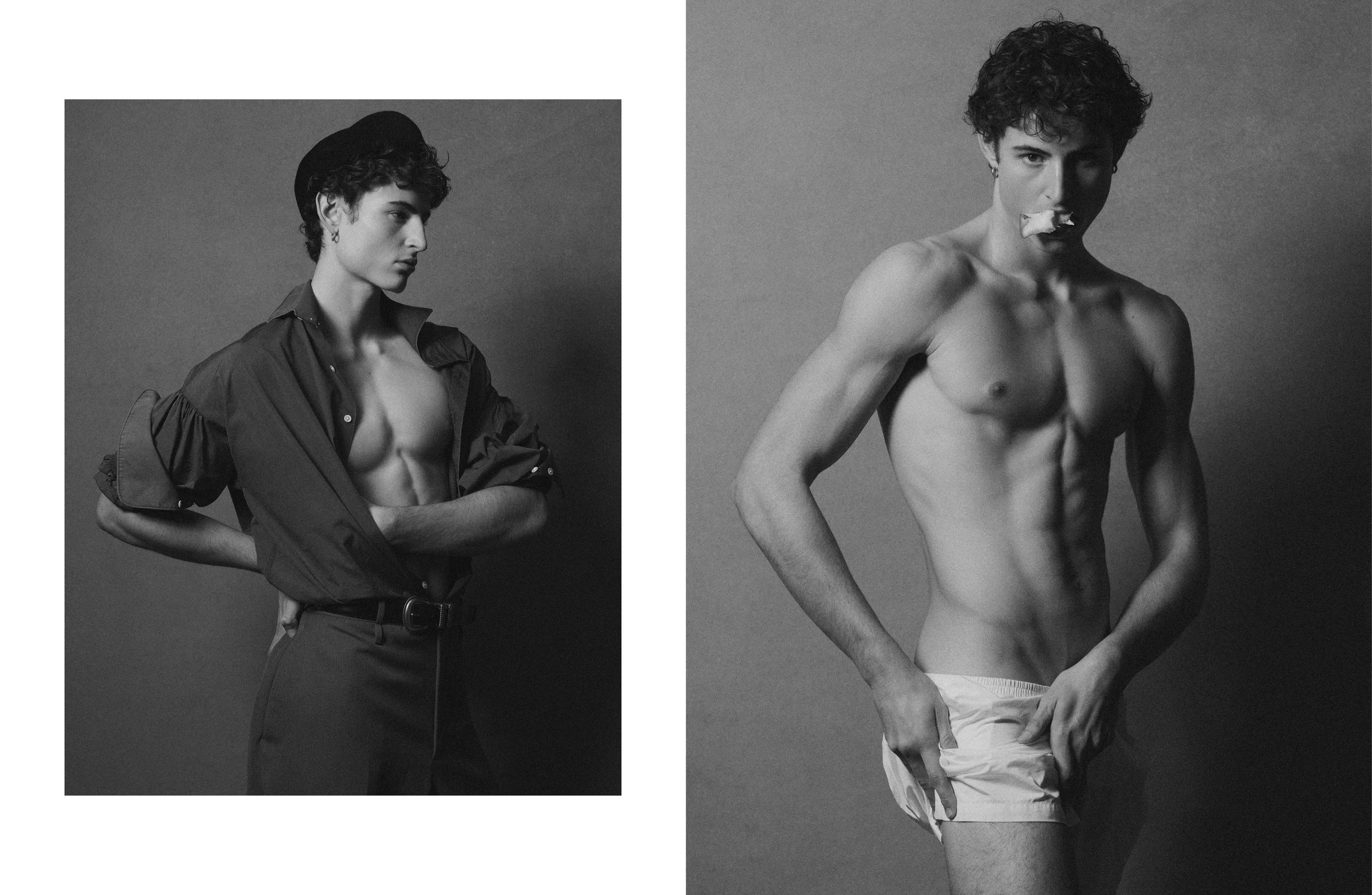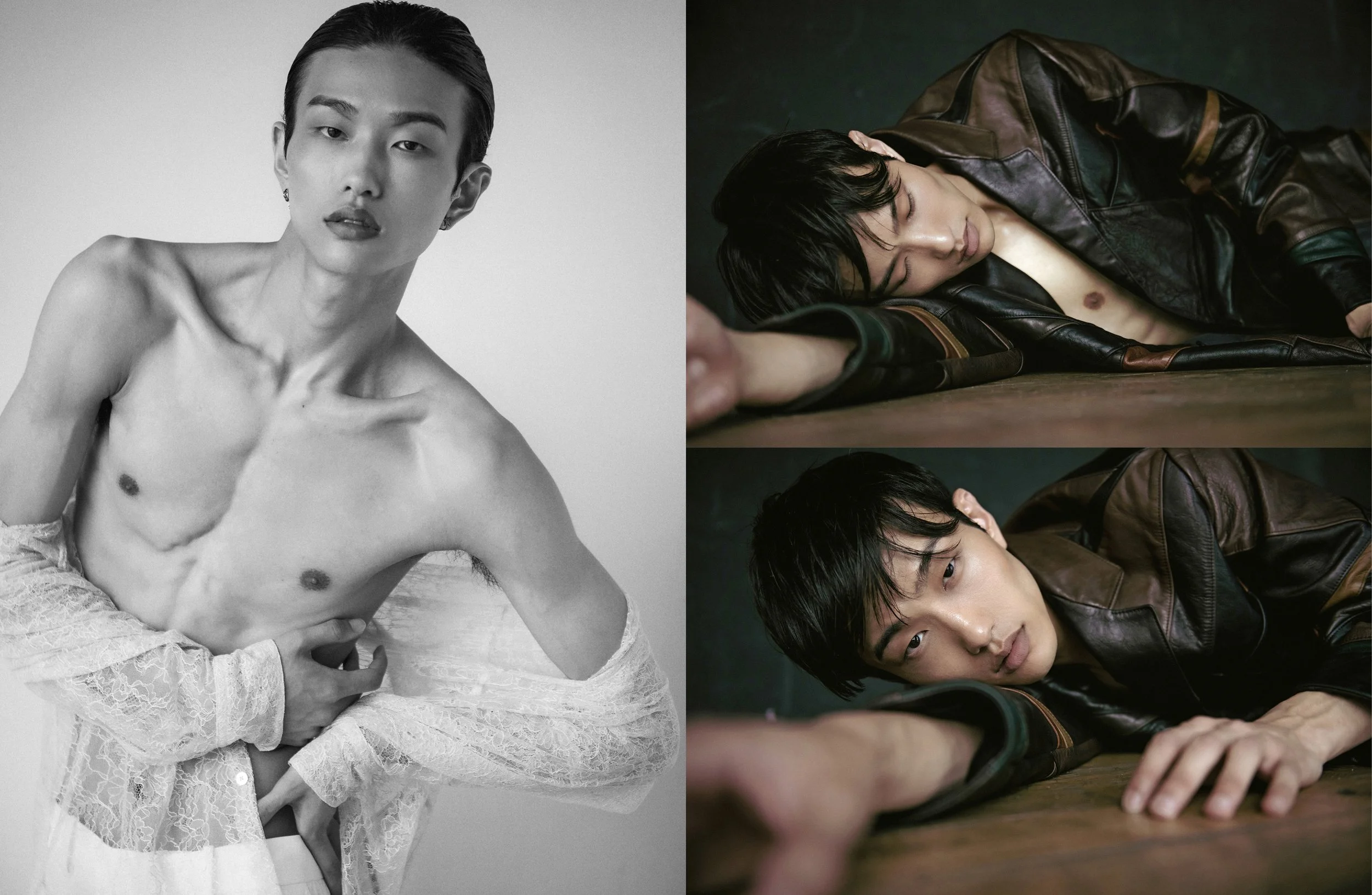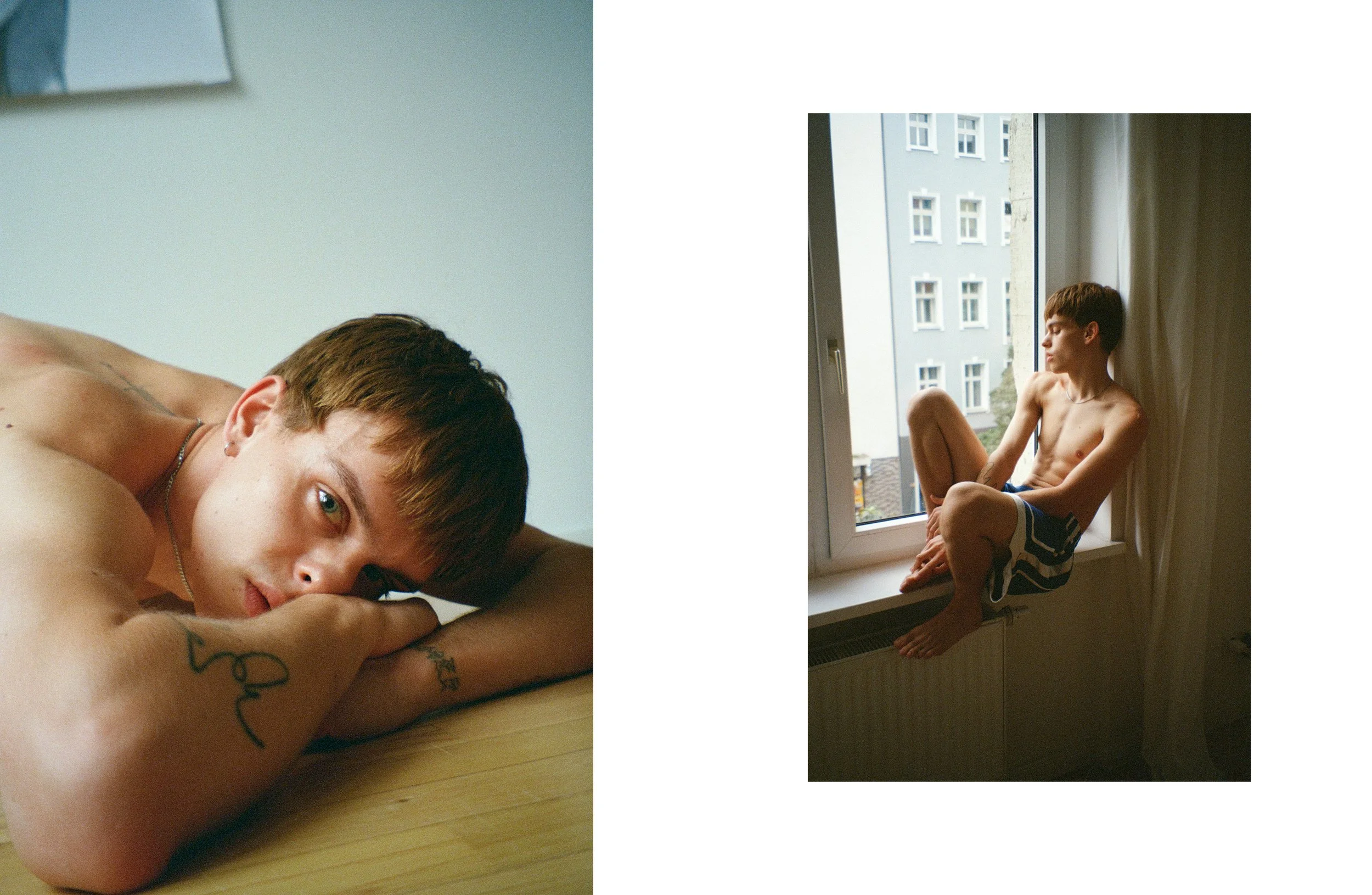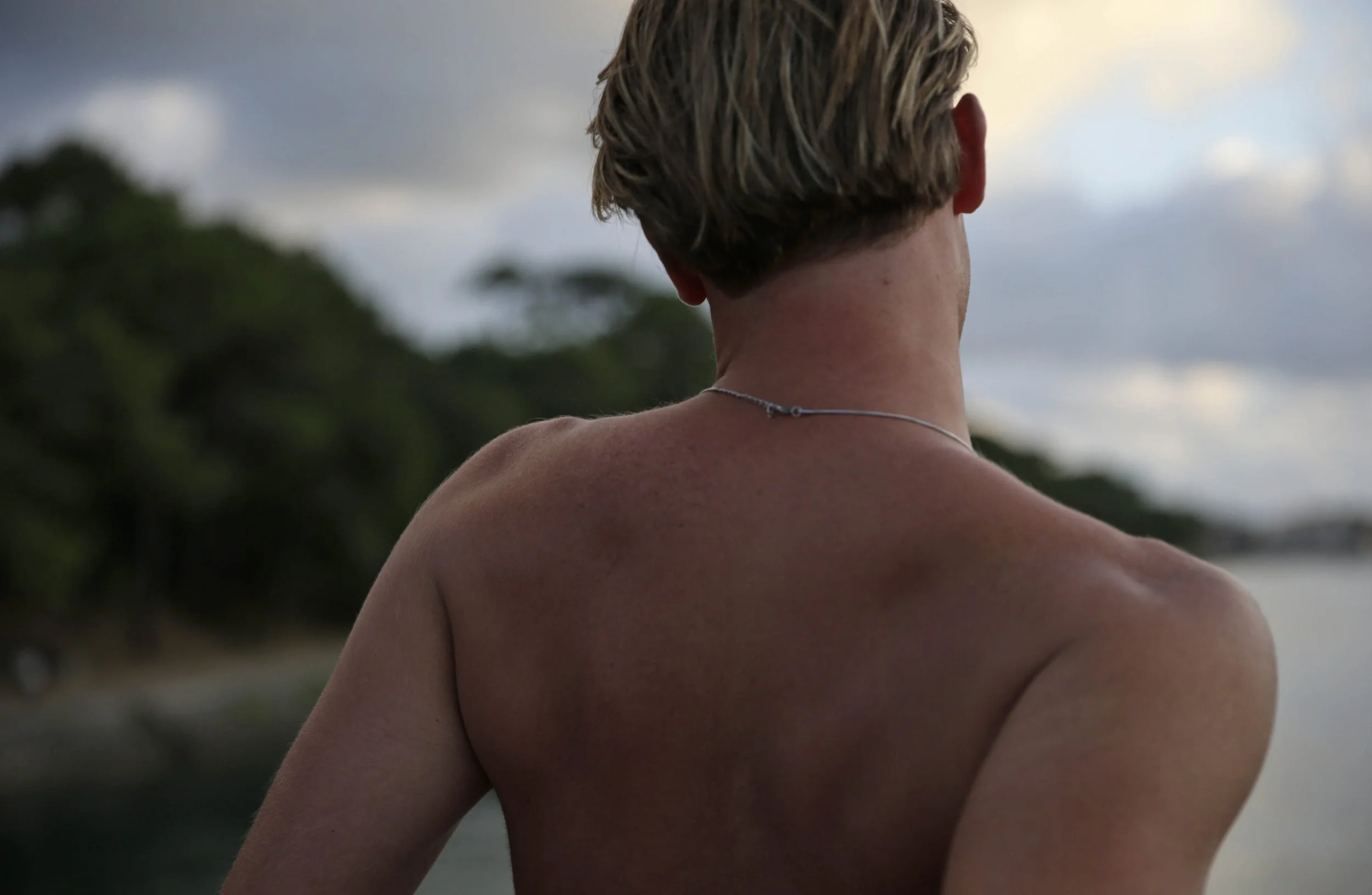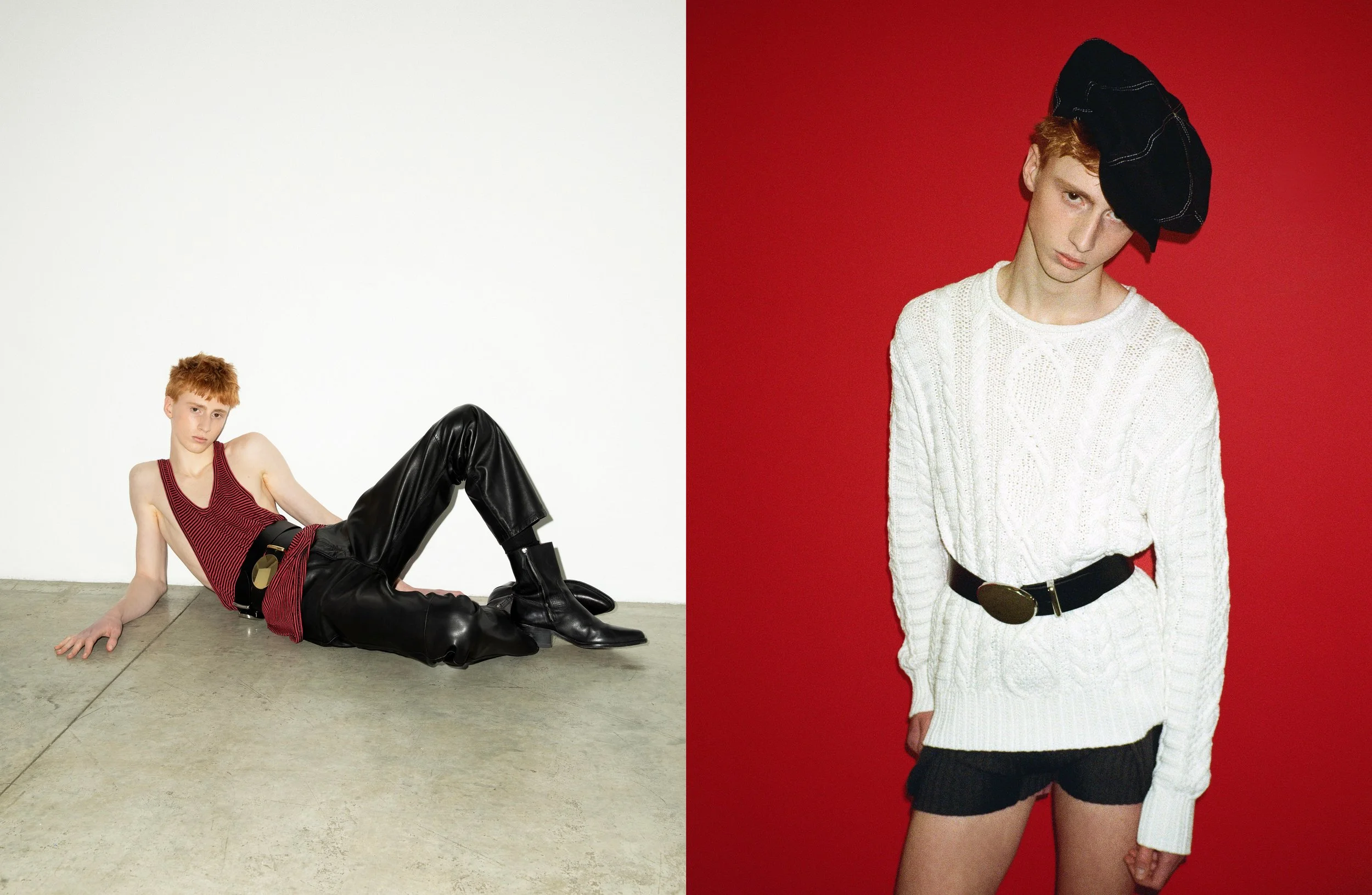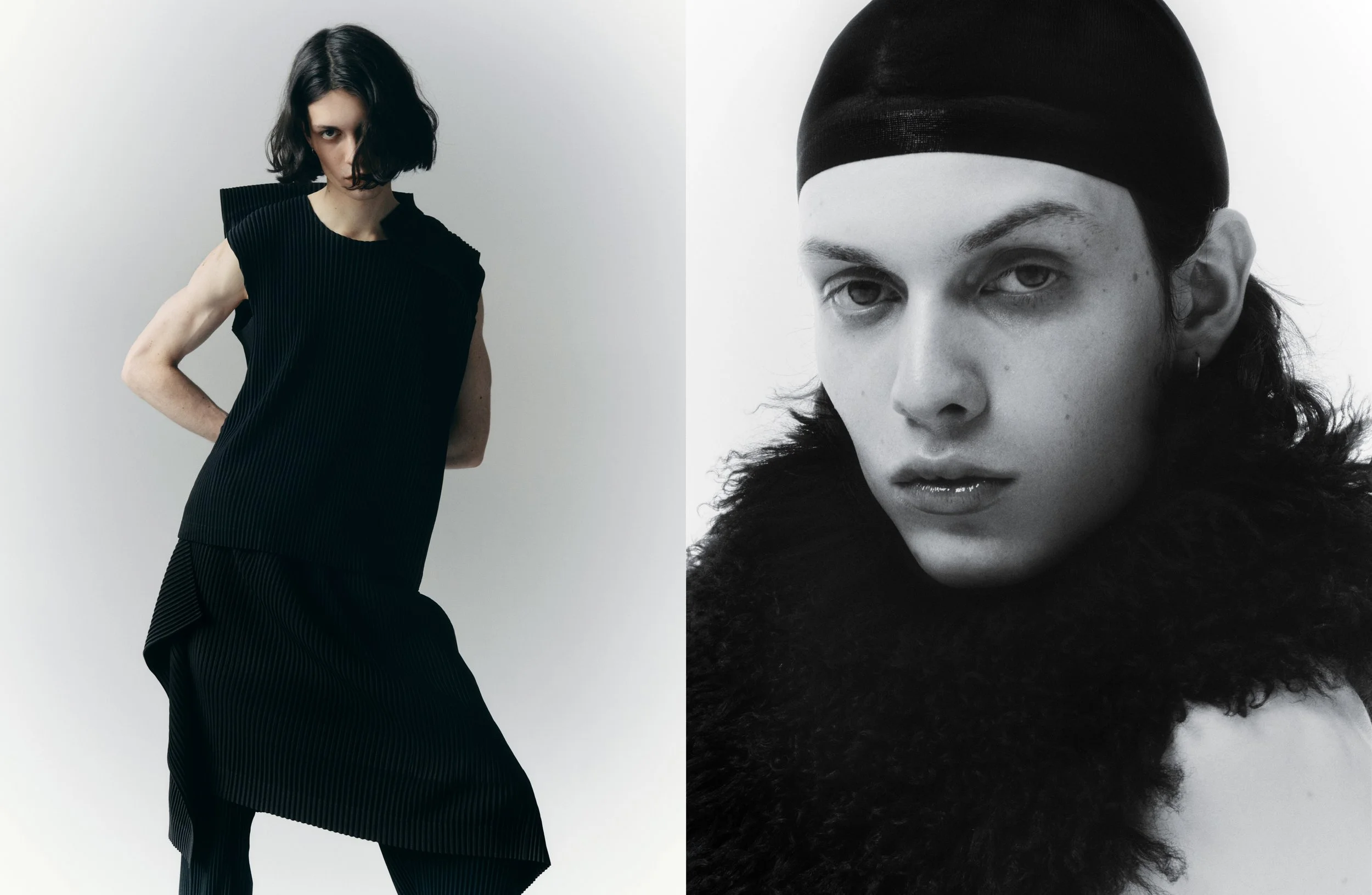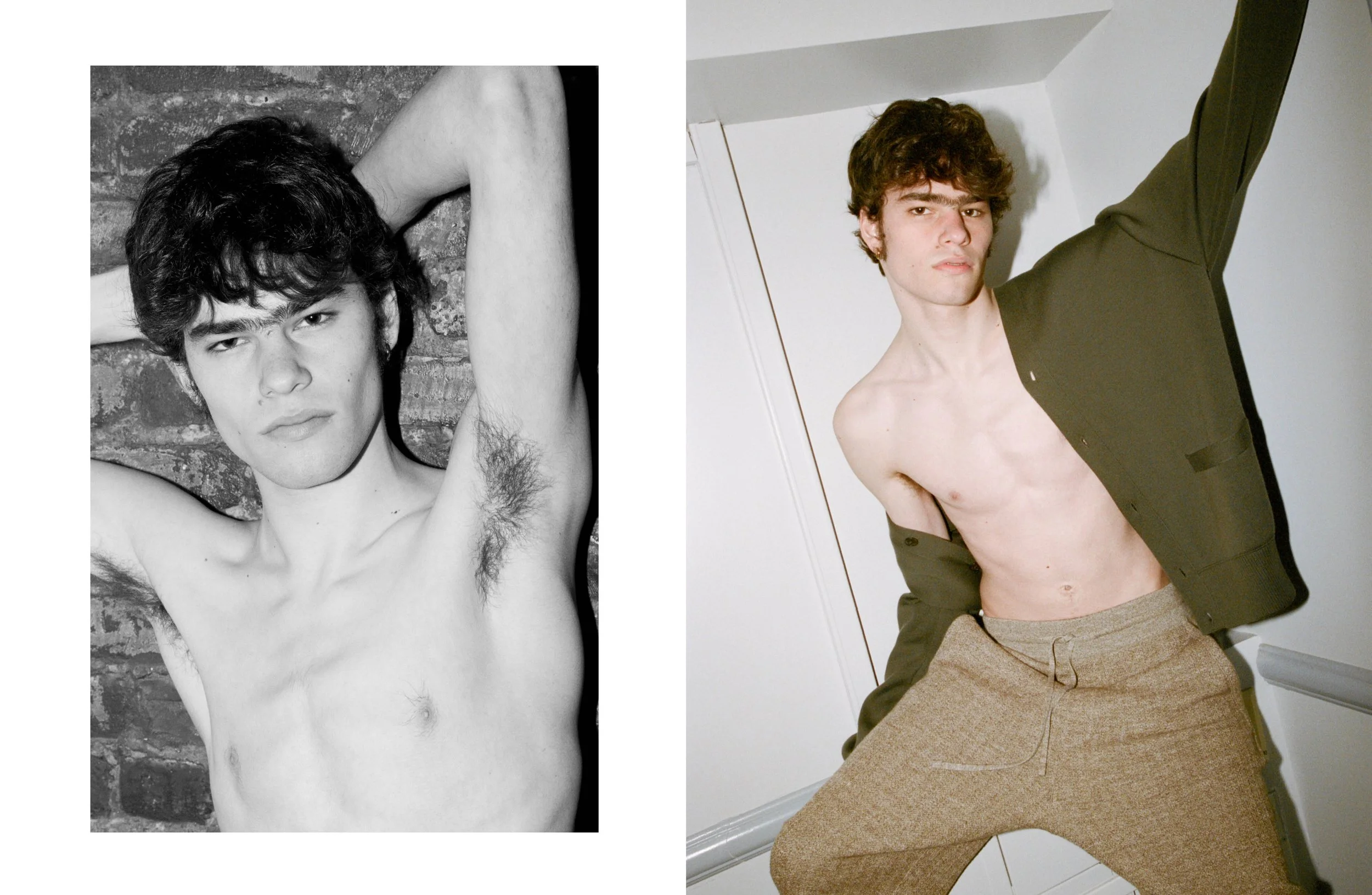Jannis Niewöhner is already a household name in the German industry, but with his latest film, Netflix’s gripping production ‘Munich: The Edge of War’, his face is sure to become recognisable all around the globe. Set predominantly in the autumn of 1938 when Adolf Hitler prepares to invade Czechoslovakia, the drama tells the story behind diplomatic negotiations of Neville Chamberlain's government, which seeks to obtain a peaceful state of affairs at any cost during an emergency conference. In the film, Niewöhner plays brilliantly the complex character of Paul - a German diplomat who despite once being a supporter of Hitler’s ideas, aims to cease his growing influence after realising the barbaric dangers of his regime. For us, Niewöhner talks about researching the pre-war period, Paul’s inner conflicts, and the film’s relevance in today’s landscape.
Left T-shirt Arket & pants and blazer Bottega Veneta,
Right Top William Fan & pants and shoes by Bottega Veneta
What was the research that you did to prepare to play Paul?
I looked into not only the pre-war period, but also the time around when my character would be growing up. He was probably born around 1910, so I questioned what that would mean for a young child: what was his background, whether his father was participating in World War I and if so, what did that do to his family? It was important to me to have this information about where he’s coming from to comprehend why he would support Hitler in the early years, and also get an understanding of what he must have felt like when things started to change and Hitler’s policies affected him personally through what happened to Lenya. Another big thing was doing the accent work – I had to grow into it and speak like someone that attended Oxford, so I had to do the lines over and over again. I really enjoyed that part of the process and I have been continuing to do the accent work since the film wrapped.
Left Coat Bottega Veneta & cardigan WOOD WOOD
Right Shirt & pants Giorgio Armani,
Paul is a very complex character that completely transforms over the course of the film. What are the inner conflicts that appear in his mind?
Yeah, there’s just so much going on within him. He feels responsible for what’s going on because he initially supported Hitler. He understands what the regime is capable of and that makes him uncompromising in achieving his goal to stop it. At the same time, he’s not the typical kind of hero – he doesn’t just say, ‘Okay, we have to stop Hitler and we’re going to do that.’ It’s actually quite difficult for him because he’s scared, which I think makes him human. He has the possibility to assassinate Hitler, but he can’t bring himself to do it. However, in the end, he does say, ‘But I still have to find another way to fight and stop him.’
Both Shirt CP Company, jacket Magliano & shoes VAGABOND
This is your second film with director Christian Schwochow. What do you like about collaborating with him?
So many things! In Germany, you can ask literally any actor about their dream directors to work with and they would say Christian because he’s really special. Collaborating with him always gives me the opportunity to not only learn more about acting, but also through the stories he tells, about society or history. He always wants his actors to be engaged and be creators of the narrative – he wants us to know everything about the time period the action takes place in and be ready to improvise. For example, with this film, we had a special website for the whole team with all the information about the characters, the places we were shooting, old documentaries that were colourized so that we could get a better feeling of what that time felt like or voice recordings. He searches for everything that makes the time period that’s being portrayed and all the characters feel alive and I really love that about him. He’s also a great teacher – you take him as an authority and you want to listen to him, but at the same time, he makes you feel like you are an authority in the job that you do on set as well.
Both Shirt & pants Hugo Boss, coat William Fan, glasses Gentle Monster, necklace Chanel and shoes Bottega Veneta
What in your view makes the story in the film relevant today?
The story talks about the difficulties that come up if we have to deal with political actions of other countries which go against our values or seem concerning. It asks how can you have a conversation between two different points of view and when you should draw a limit, which I think has a lot to do with what we see today all around us. It also deals with the personal feeling of responsibility to change something, and I think that has a lot to do with our time.
Left Shirt & pants Hugo Boss, coat William Fan and shoes Bottega Veneta
Right Left Coat Bottega Veneta & cardigan WOOD WOOD
…
Interview by Martin Onufrowicz
Photography by Debora Brune
Fashion by Camille Naomi Franke
Production by DILLER Agency
Grooming by Victoria Reuter using Mac Cosmetics and Oribe
Photo Assistant Patrick Schardt
Styling Assistant Sarah Masche
